A Fable for Now
by Wei Yu-Chia
Translated by Jeremy Tiang
Genre: Neo-absurdism
Key Scenes: pp. 13-17, Scene Four (2M); pp. 29-36, Scene Seven (1M); pp. 17-22, Scene Five (1M, 1F + 2 animals)
Number of characters: 25 (Seven scenes; different casts per scene) Age recommendation: 12+ (depicting violence and cannibalism)
Country: Taiwan
Original language: Traditional Mandarin Chinese
Translation 1: English translation by Jeremy Tiang
Translation 2: English translation/adaptation by Mingyu Lin
Description:
Taiwan Literature Prize-winning play, A Fable For Now, shows us the world ending again and again. These global catastrophes come with environmental collapse, war, government incompetence, and unrestrained capitalism. Navigating this chaos are a panda, a polar bear and a duck, a genetically-modified chicken and a couple of humans. How can we coax meaning and happiness out of our brief time on this dying planet? When the dust settles, only one human being is left alive in the world -- but is he blessed or cursed to have survived?
Staged reading at the PEN World Voices International Festival, Segal Center, Apr 2018, directed by Mei Ann Teo, with Eric Aviles, Wei-Yi Lin, David Shih, Elise Santora, Ching Valdes, and Jeena Yi.
This play was originally written in Mandarin (Chinese) in 2014.
Image credit: Drawing by Biba Kayewich
+ DETAILS
Country: Taiwan
Play Title in Original Language: 現世寓言
Author(s): Wei Yu-Chia
Language(s): Traditional Mandarin Chinese
Publisher: Laertes (date TBC)
World Premiere (in the Engl. lang.): None yet. Development: Reading, PEN World Voices Festival, New York, USA, 2018
Translation 1: Jeremy Tiang
Translation 2 / Adaptation: Mingyu Lin
Essay Writer: Jasmine Yu-Hsing Chen
Education Pack Resource Writer: Alia Alzougbi
Filmed Excerpt Director: Mingyu Lin
+ AUTHOR'S NOTE: Wei Yu-Chia
“This is a fable. It takes place a long, long time ago, or a long, long time in the future—not now, anyway, because people don’t want to hear stories about now. Apart from various humans, the story also contains speaking animals, which doesn’t conform to our current circumstances—and the location can’t be too nearby either. Closeness is strange. Closeness is gross. No one would listen. Closeness means no room for imagination, or beauty.
“So let’s choose the arctic as our setting, while adding in certain ideas that transcend the arctic...”
The above is the opening of the introduction I wrote for the Taiwanese premiere of A Fable For Now in 2016 (it was presented by Creative Society with the title #, directed by Lee Ming-Chen). In fact, these words were meant to provide a little explanation and reassurance for the audience who would be stepping into the theater with no idea what the play was about, and who would be leaving equally baffled. (I don’t think we actually used this, in the end, haha.) I offer them here again to preface the English translation, and whether you’re reading this before or after seeing the script, I hope these words from the playwright, somewhat shyly proffered, have not spoiled by the time you open these pages.
+ TRANSLATOR'S NOTE: Jeremy Tiang
Wei Yu-Chia is not a possessive writer. When I asked her about making certain changes to the text, she gave me blanket permission—and revealed that in its first staging in Taipei, the director made so many alterations that they decided it had become a different piece altogether, and produced it under the title #. She seemed to truly see her writing not as a sacrosanct text, but a blueprint for performance—a starting point from which other artists would have free rein to exercise their creativity. And now she had extended the same license to me.
I was, of course, respectful, but now I felt emboldened to reach for the spirit rather than the letter of this play. The Taiwanese sense of humour is more tolerant of the long build-up; in the English-speaking world, something a little punchier is needed to get a laugh. I tried to find a middle ground, so the mordant absurdity of Yu-Chia’s work remained very much present, but it was funny where it needed to be. If I had stuck too closely to the original, what read to me as wry deadpan wit in Chinese would have felt lugubrious in English. There had to be a translation of style as well as language, so it would land as it was intended (or rather, as I can’t speak to Yu-Chia’s intentions, so it would hit an English-speaking audience as it first hit me in Chinese; the play had a reading in London and subsequently another one in New York, and each time I found myself tweaking the language to be more British or American as necessary). I trimmed, re-shaped, and re-ordered, keeping sight of the original every step of the way—and in doing so, I hope I created a text that evokes Yu-Chia’s play more fully, than if I had simply rendered it word by word, sentence by sentence.
+ TRANSLATOR'S NOTE: Mingyu Lin
A Fable for Now is unique and vibrant, and the translation of Scene 1 provided a thrilling challenge. I immediately fell in love with its liveliness and its possibilities.
I approached the translation with a directorial eye – aiming to capture in the English text the spirit of my ideal production of the play onstage. As such, this translation is also an interpretation. A lot of my practice is character-centred and so my focus was on retaining the essence of the two characters, Polar and Man, both in their personal qualities as well as in the inter-play between them in dialogue.
The distinctive, over-friendly glibness of Man reminded me of the oily charm of the king of beggars in old martial arts stories, and needs to be translated to a specific context that takes into account the culture of the audience in order for his speeches to hit home. I therefore opted for translating his speech into an English-based syntax familiar to me that retains some of the sentence structure of the original language – the Singaporean patois. In vast contrast, Polar comes across as a magical character, inscrutable and probably timeless. A lot of Polar’s speeches were very rhythmic and haunting. So when his dialogue turns blunt and effective, it surprises you with its mundane humanity. The difference in grammatical rules means that Mandarin cannot be directly translated into English without sounding laboured, so I’ve taken more liberty playing with Polar’s dialogue to achieve the same effect in English.
I hope the extract leads you to discover more of Wei Yu-Chia’s full-length play and fall in love with it just as I did.
+ PLAY TEXT BLURB
Translation of a play by Wei Yu-Chia; winner of the Taiwan Literature Prize, 2014.
In seven scenes, the world ends again and again, for any number of reasons: environmental collapse, war, government incompetence, unrestrained capitalism.
Navigating this chaos are a panda, a polar bear and a duck, not to mention a genetically-modified chicken and a couple of humans.
How can we coax meaning and happiness out of our brief time on this dying planet? When the dust settles, only one human being is left alive in the world -- but is he blessed or cursed to have survived?
Buy the play text here
Videos
Production Images
Original (Mandarin) & Translation 2 (English)
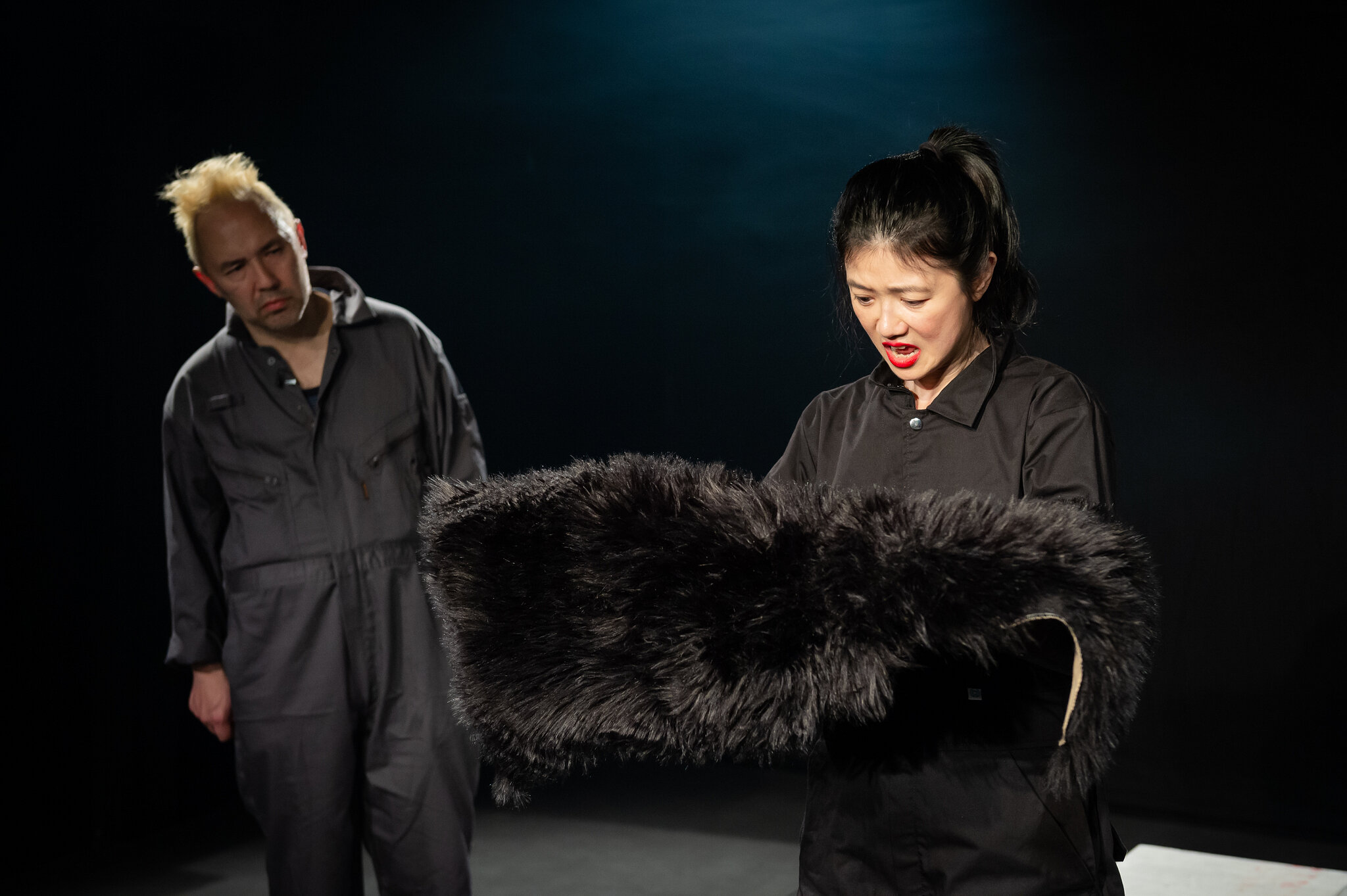

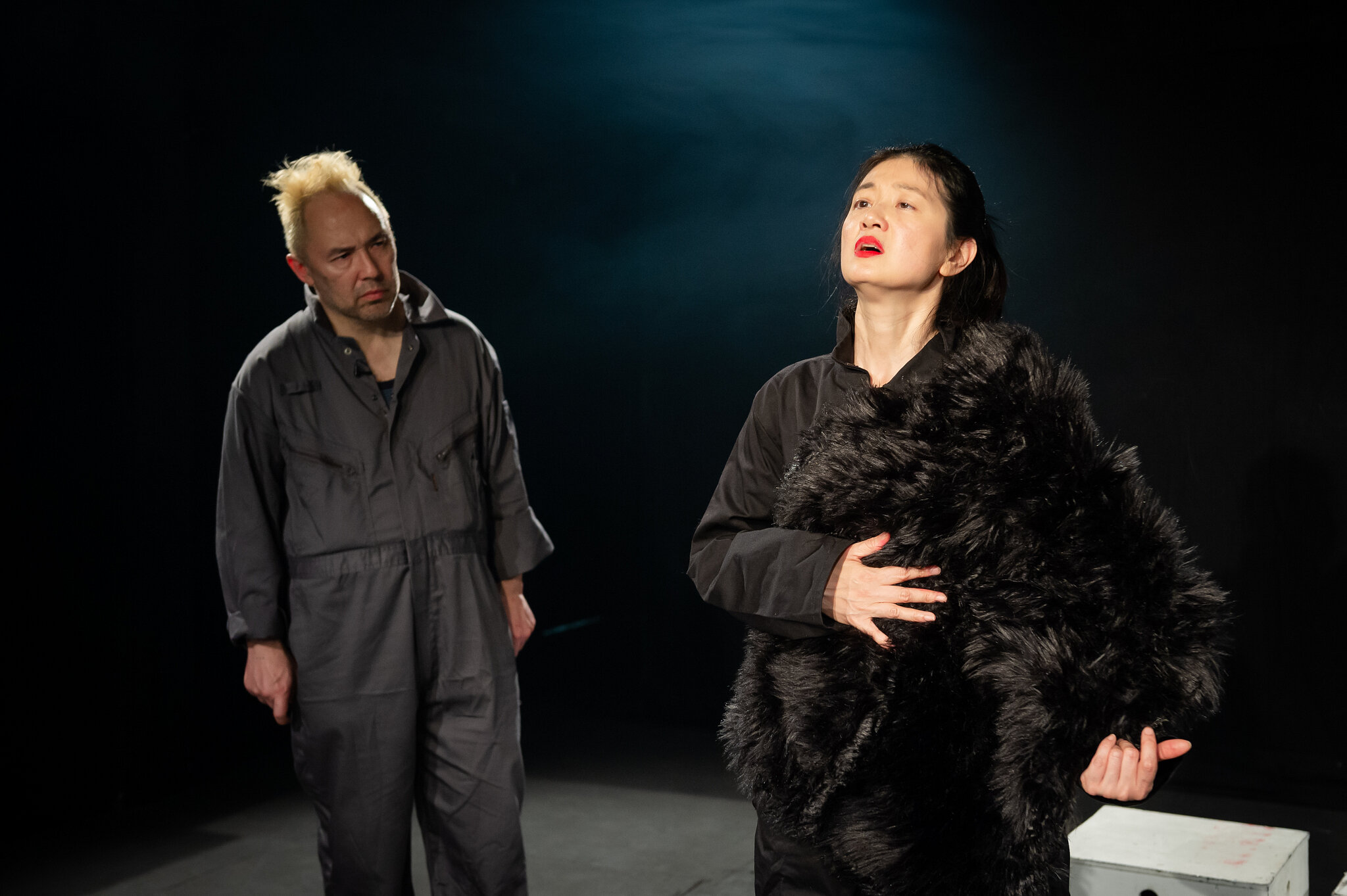
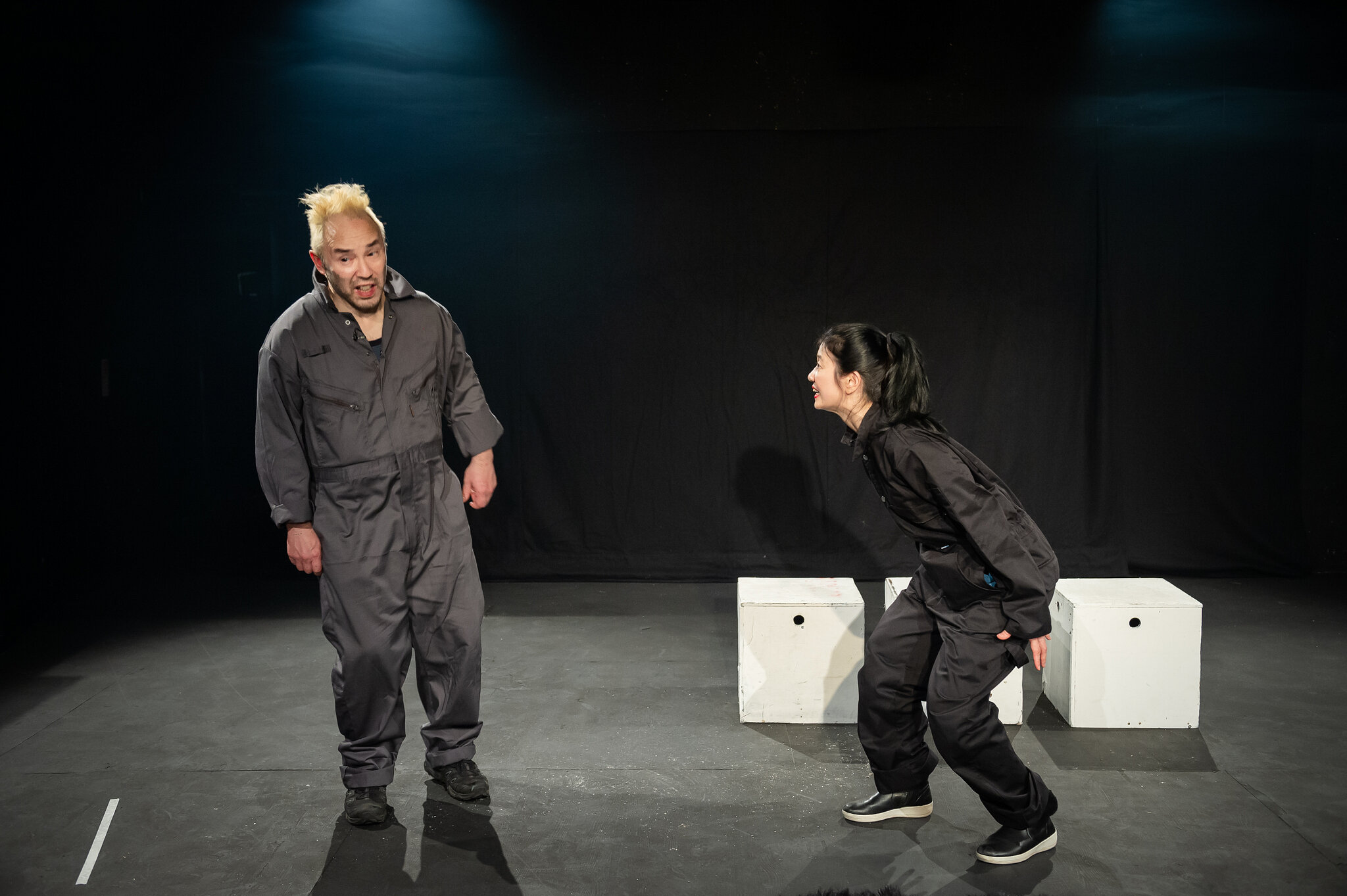
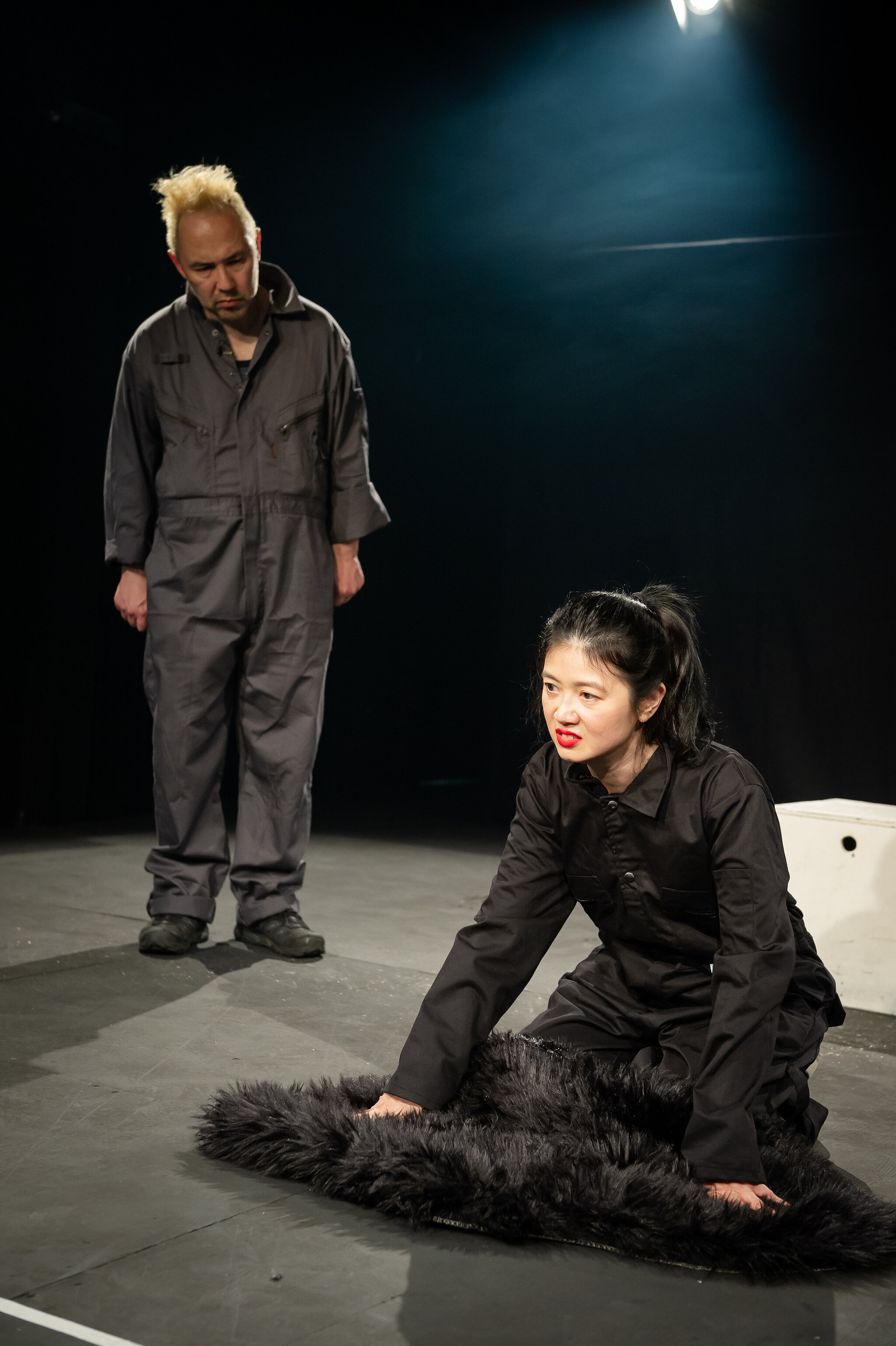
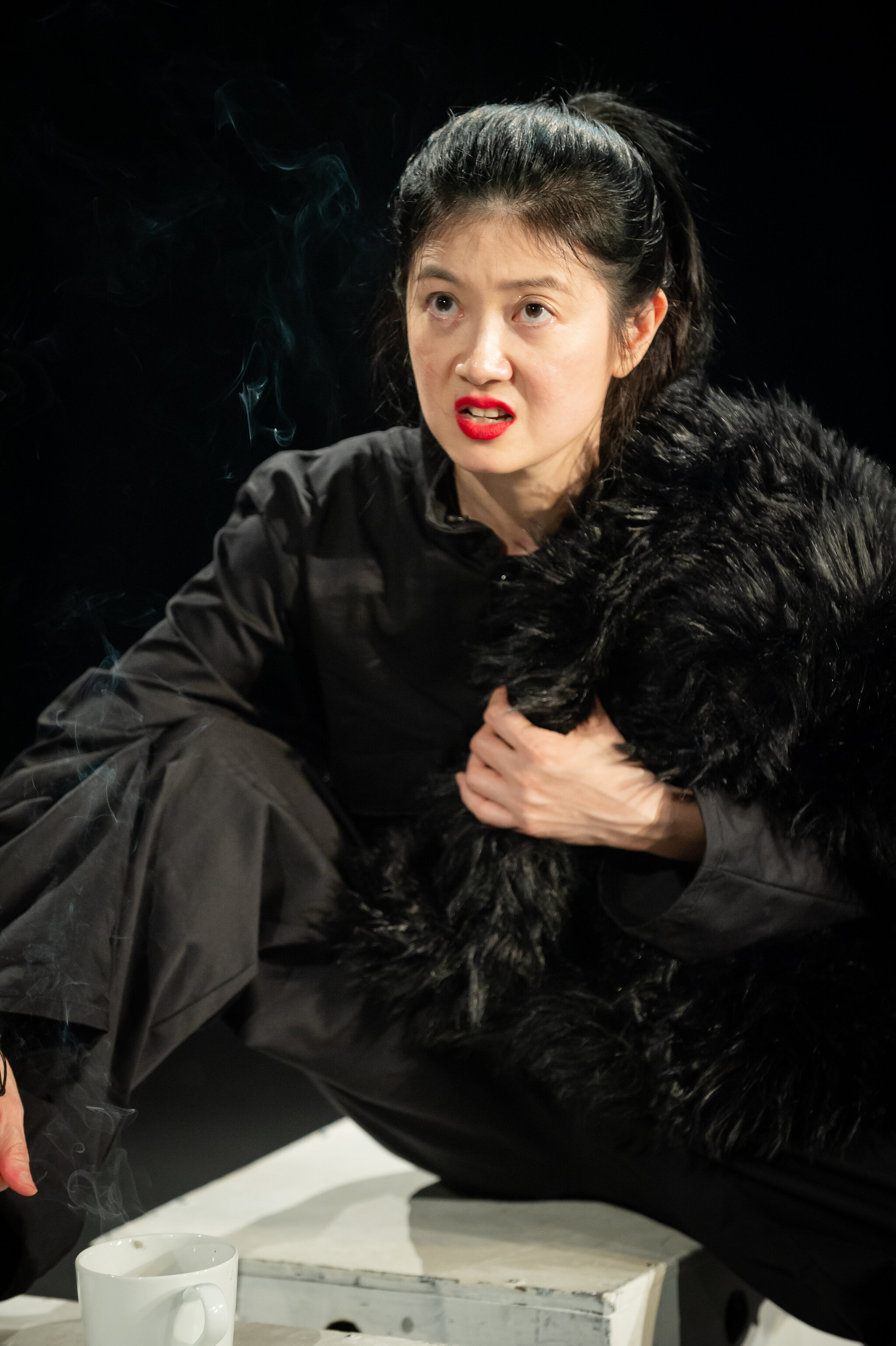
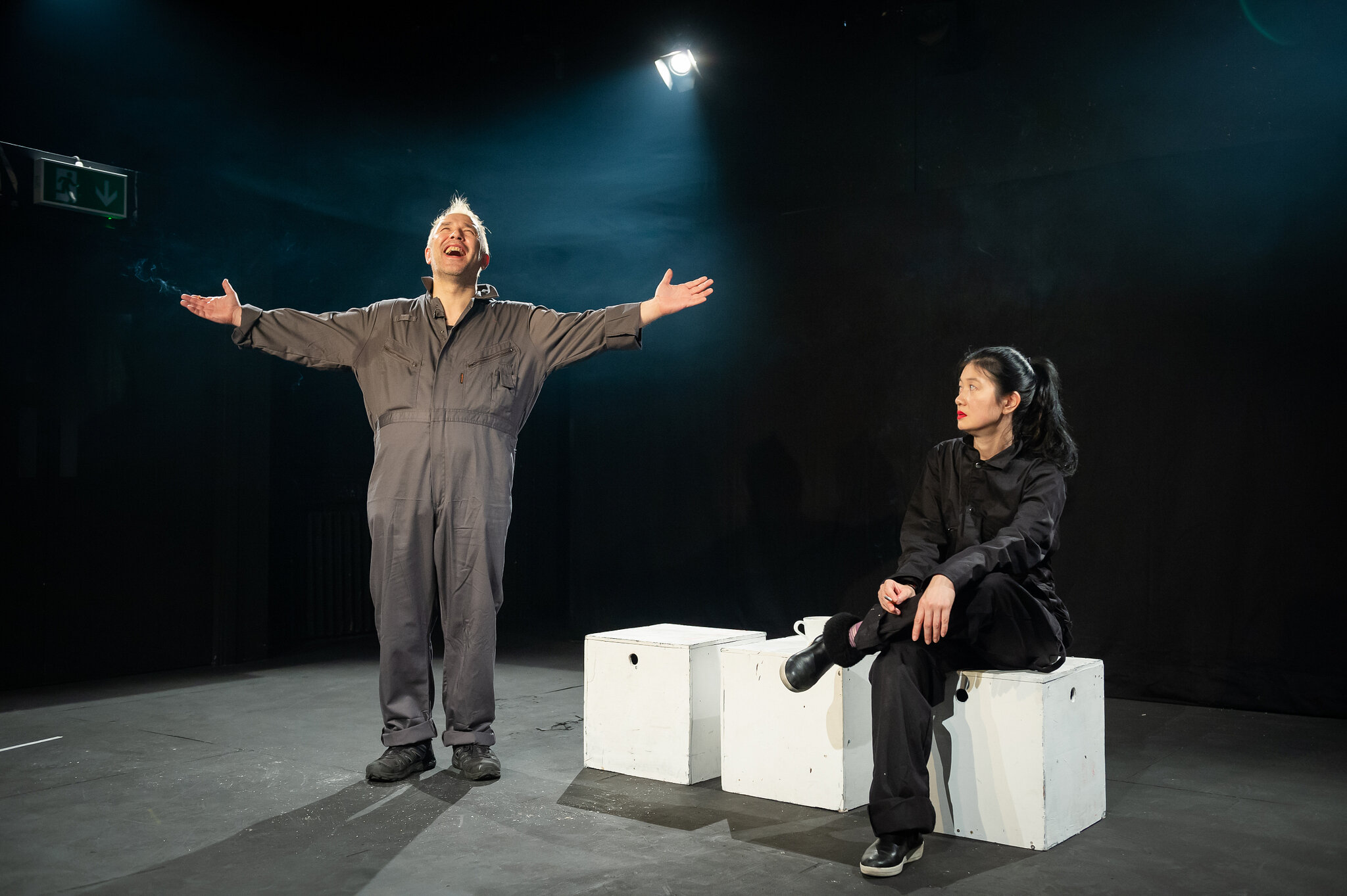
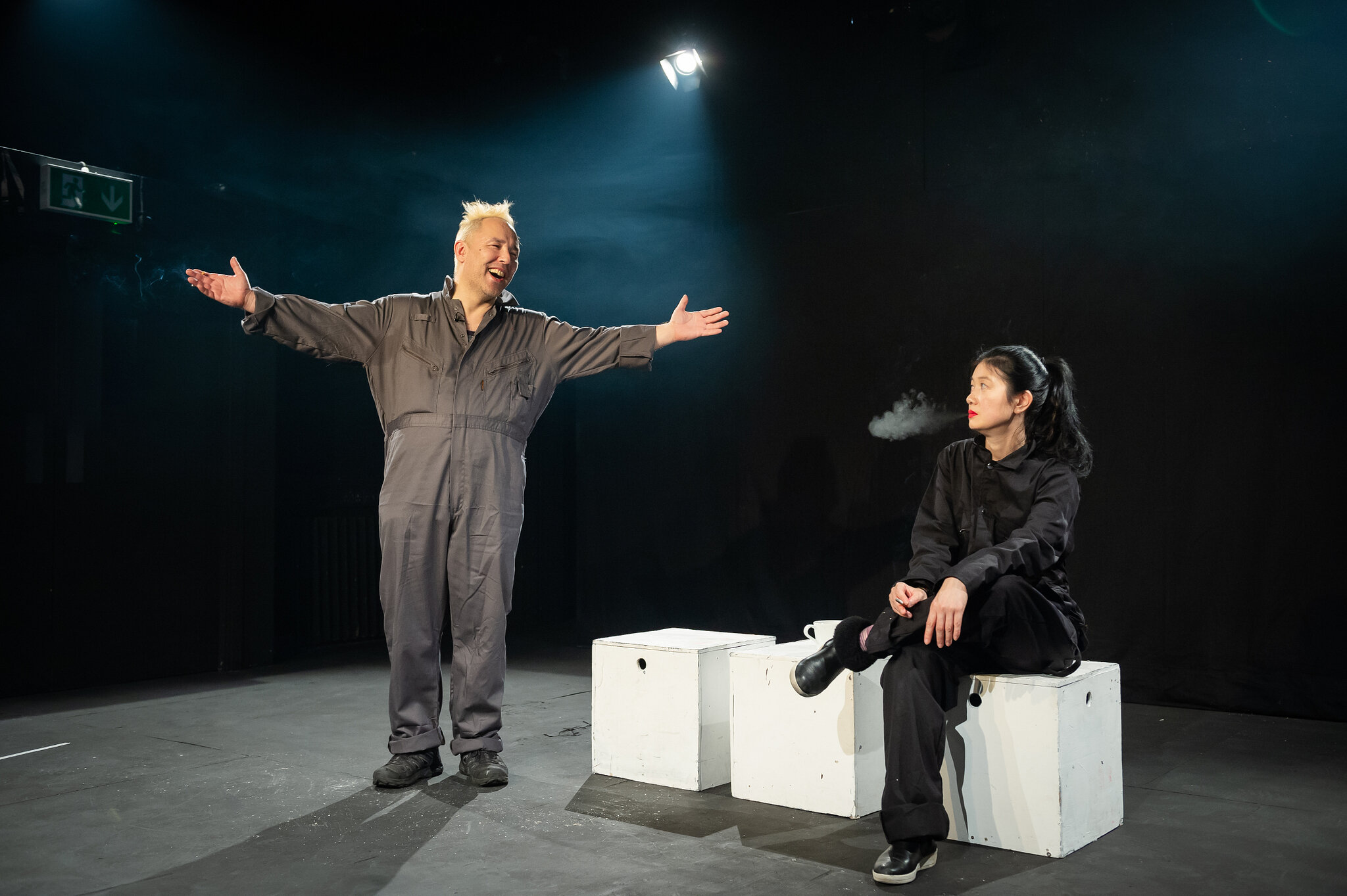
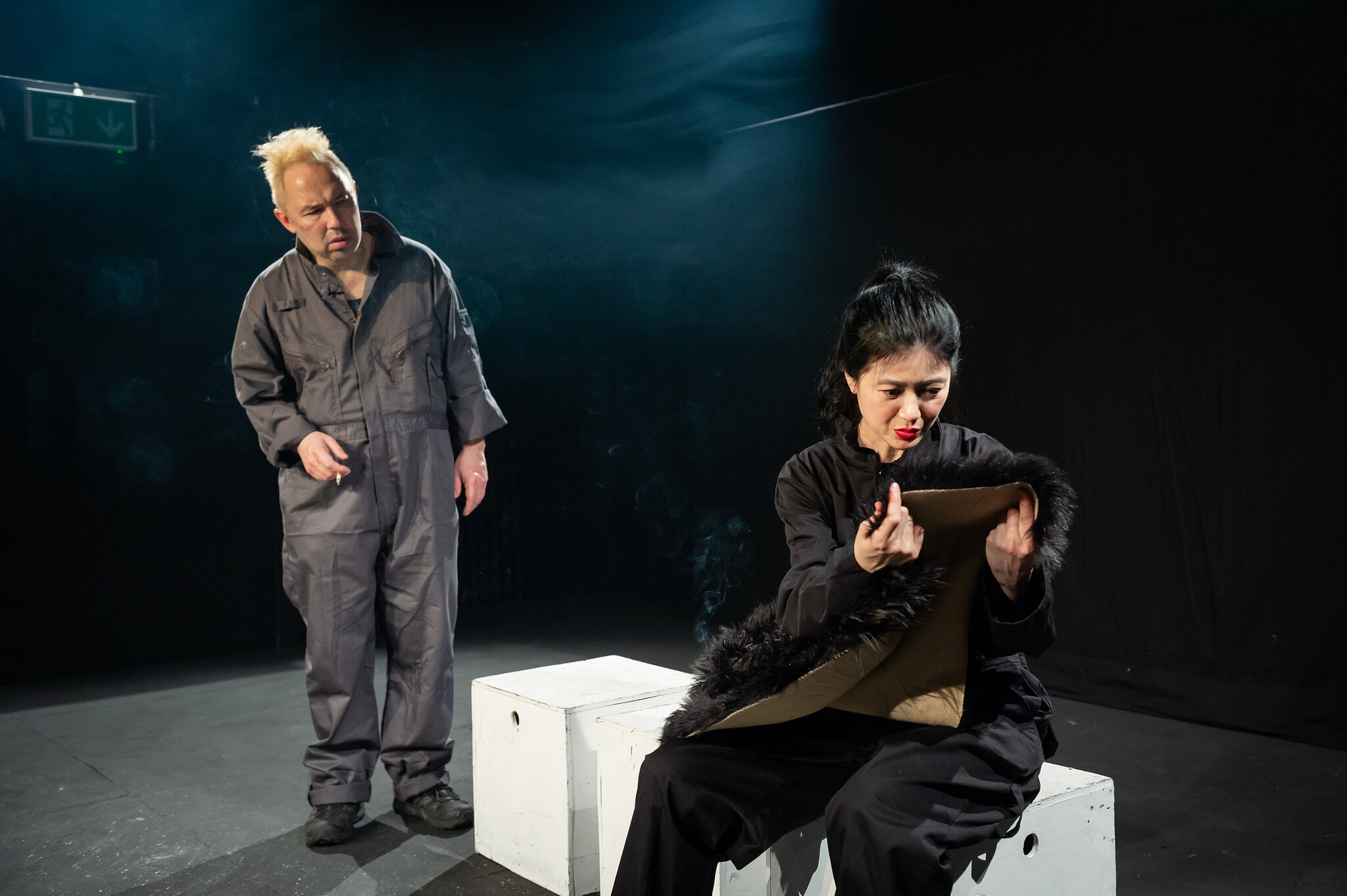
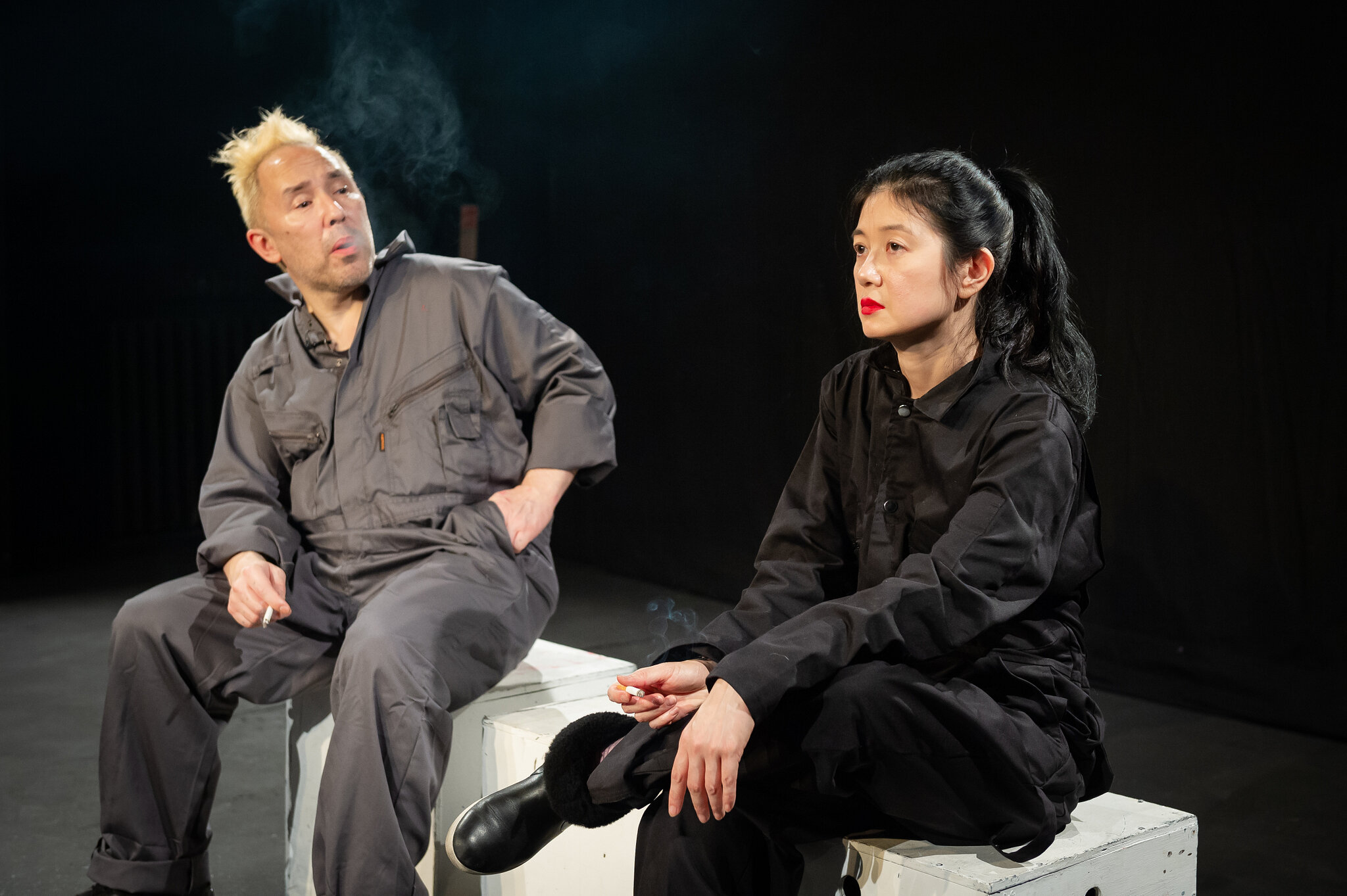
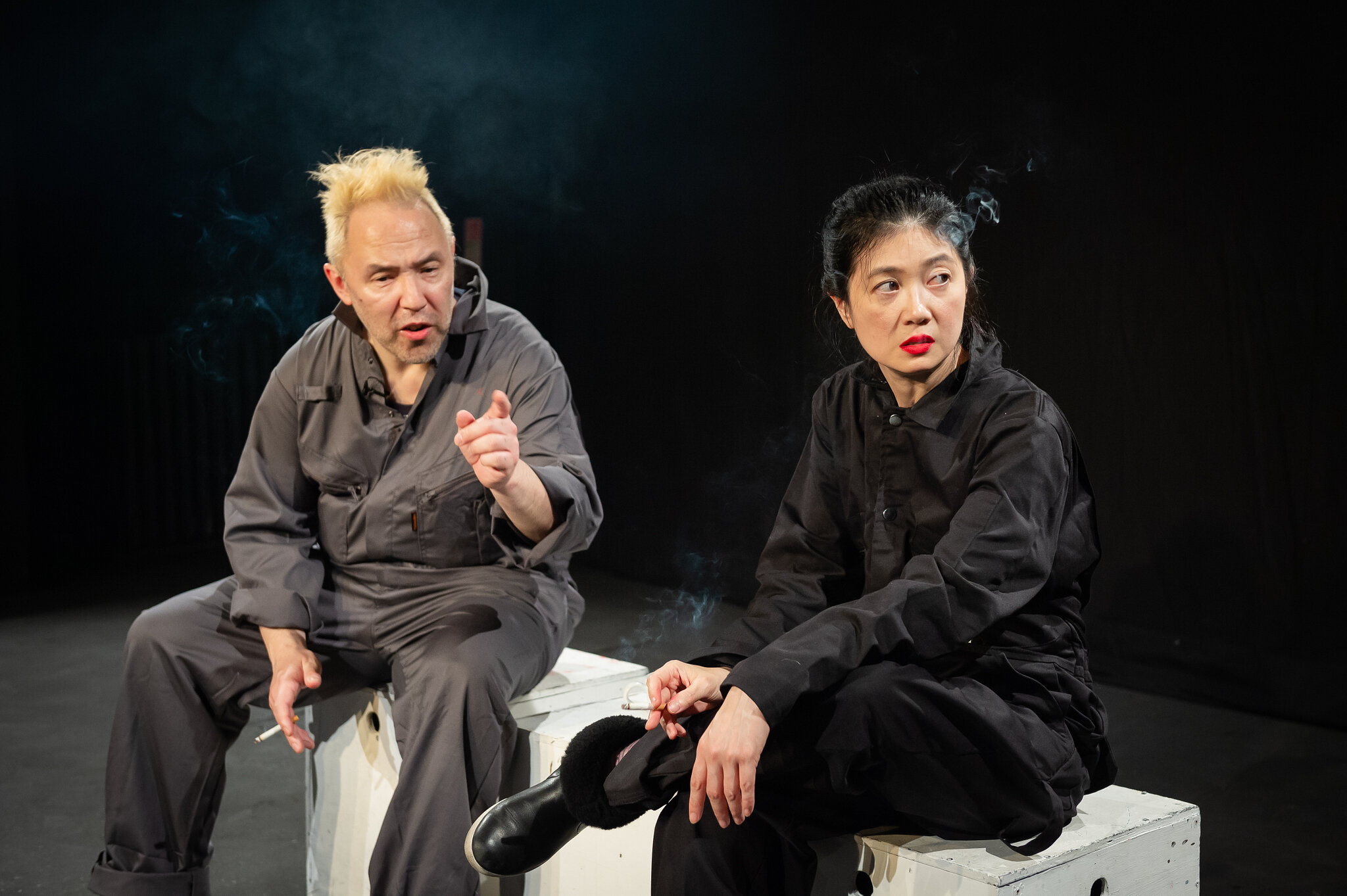
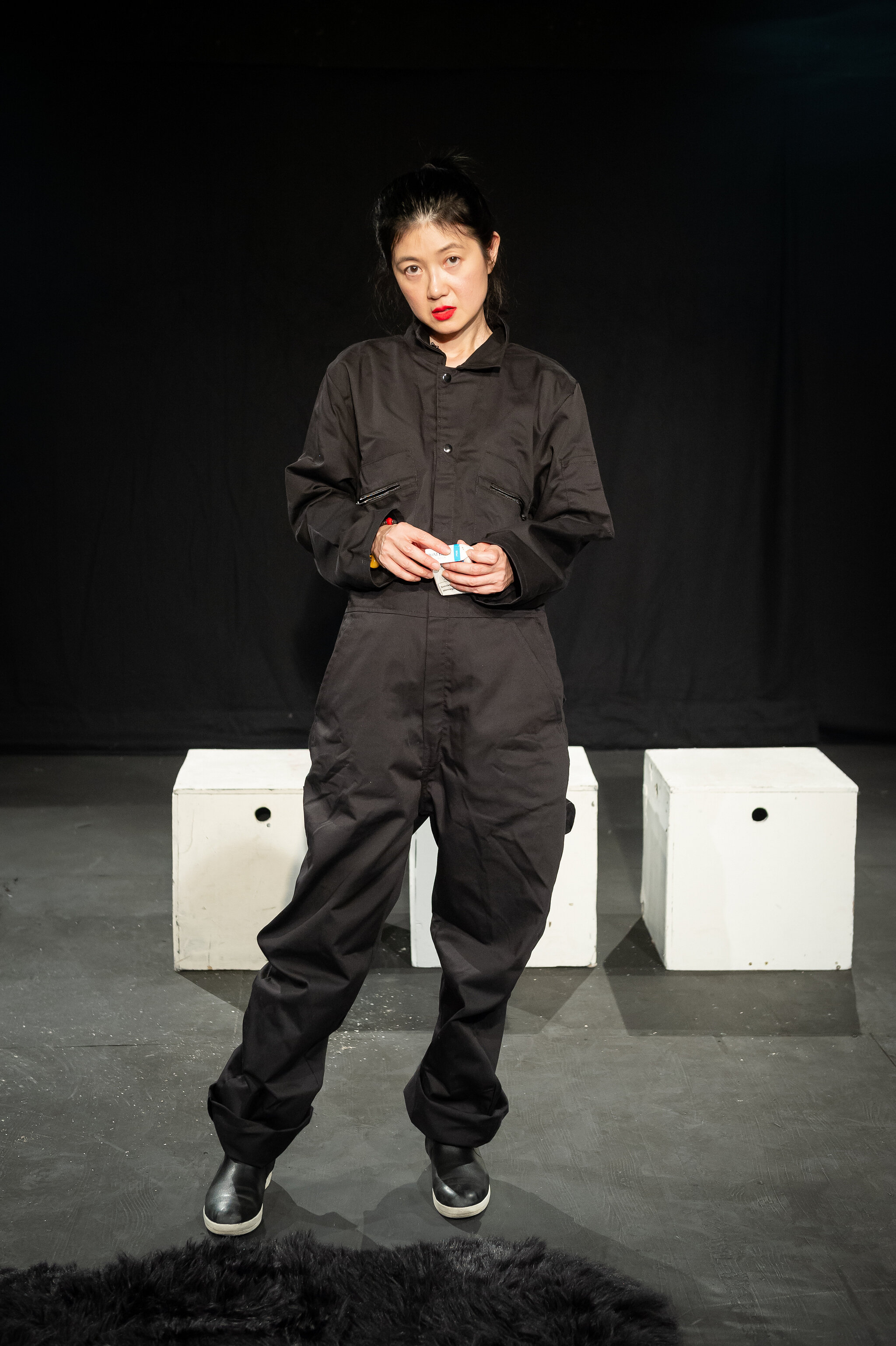
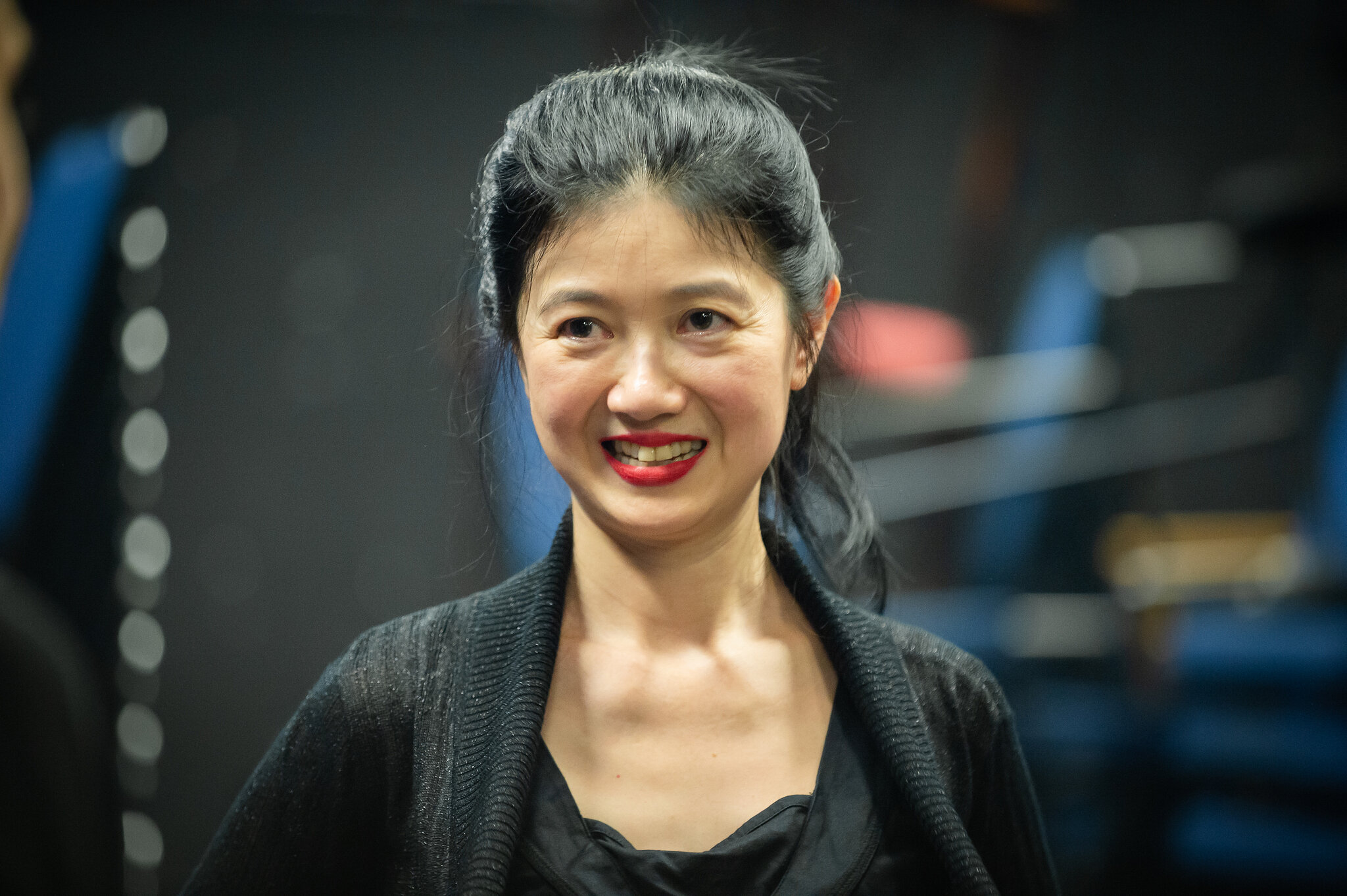
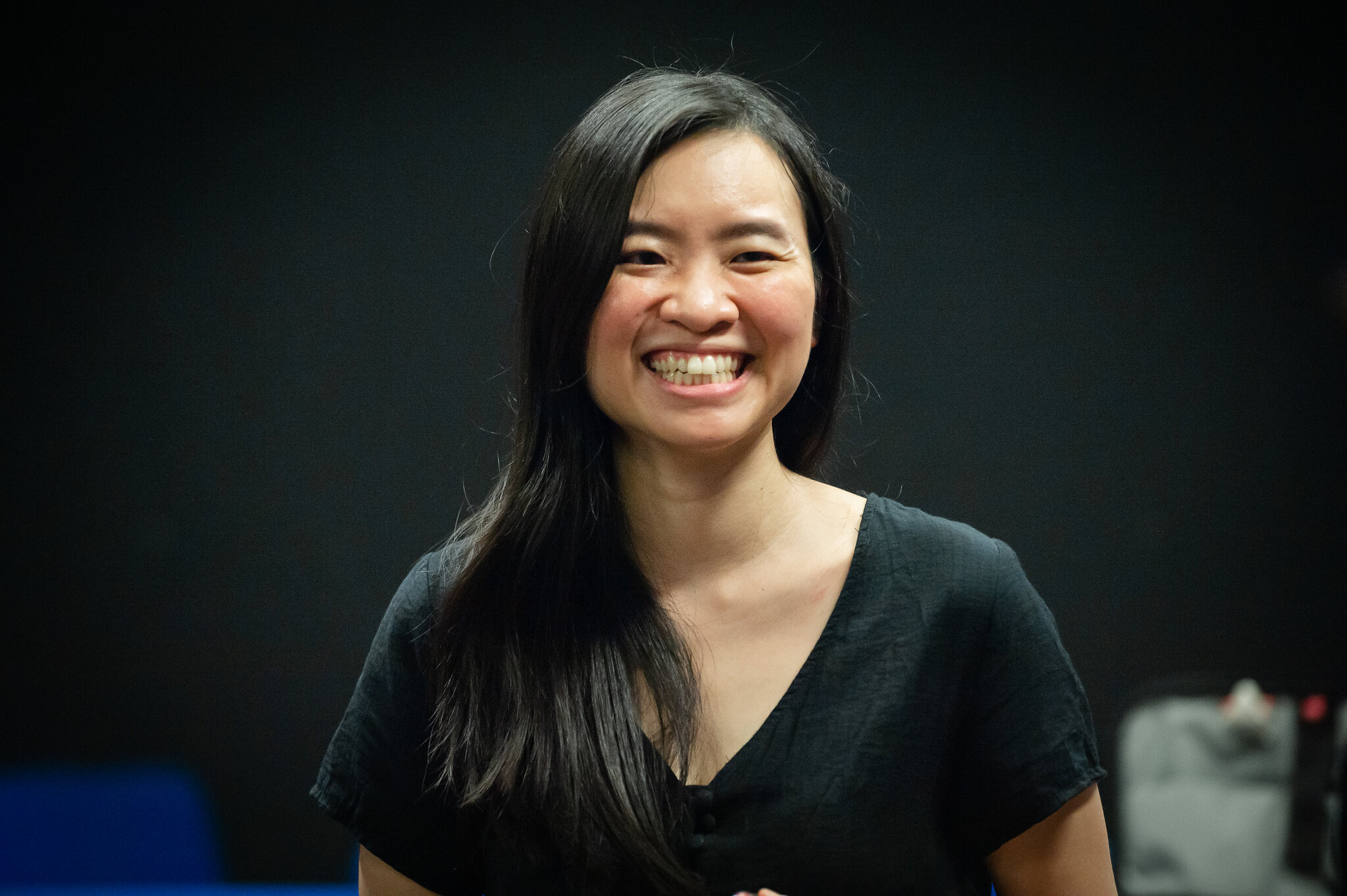
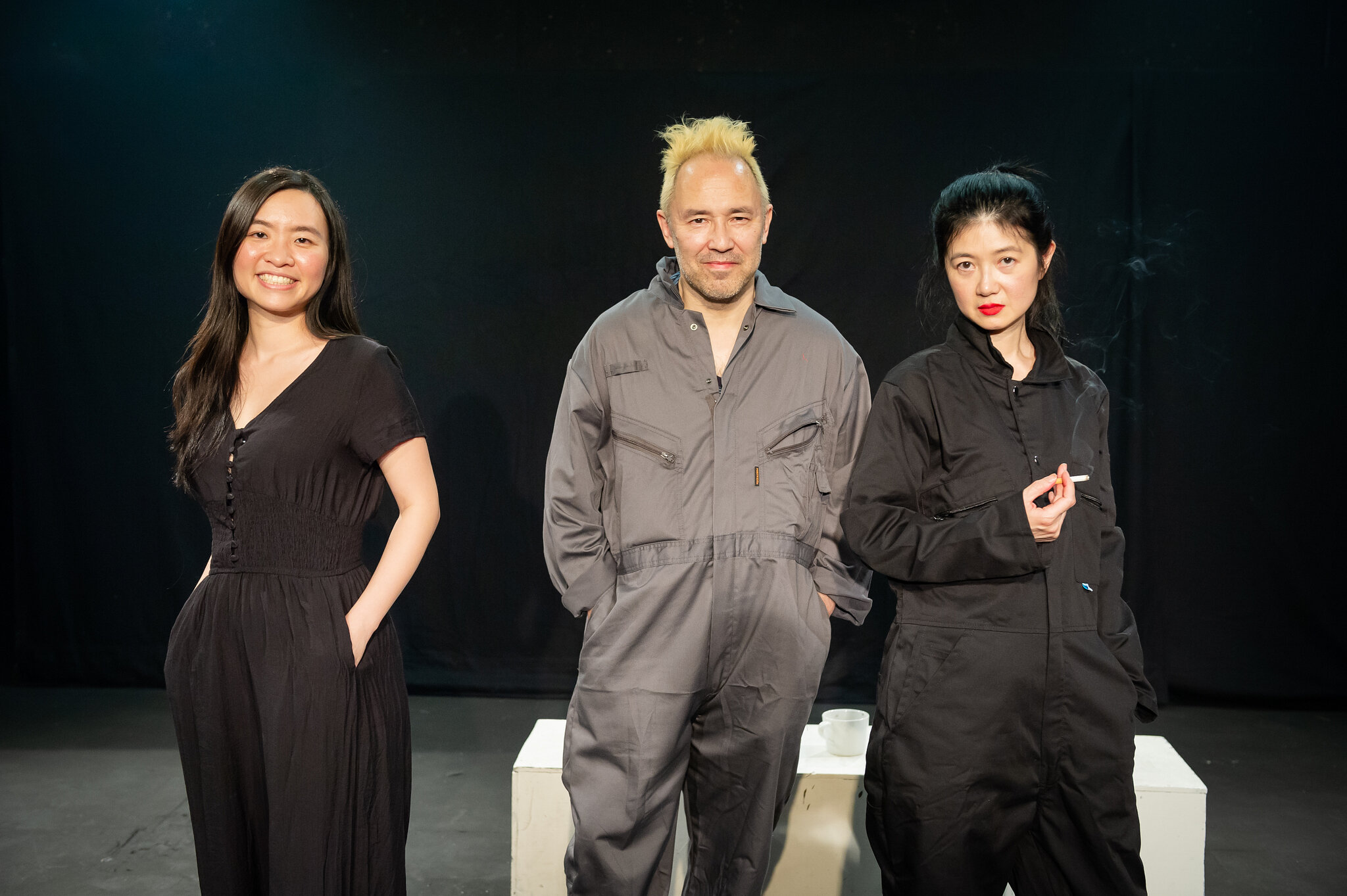
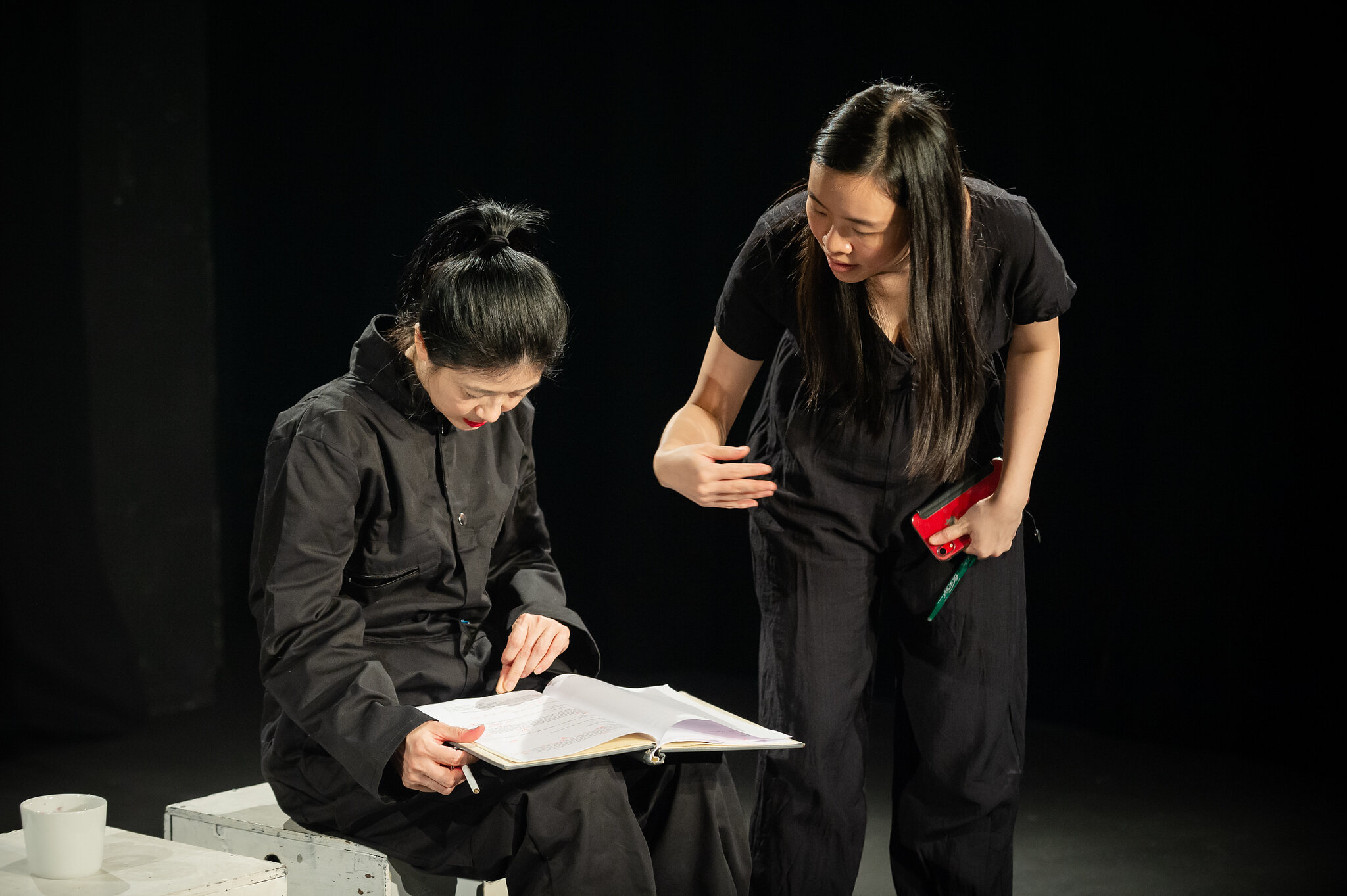
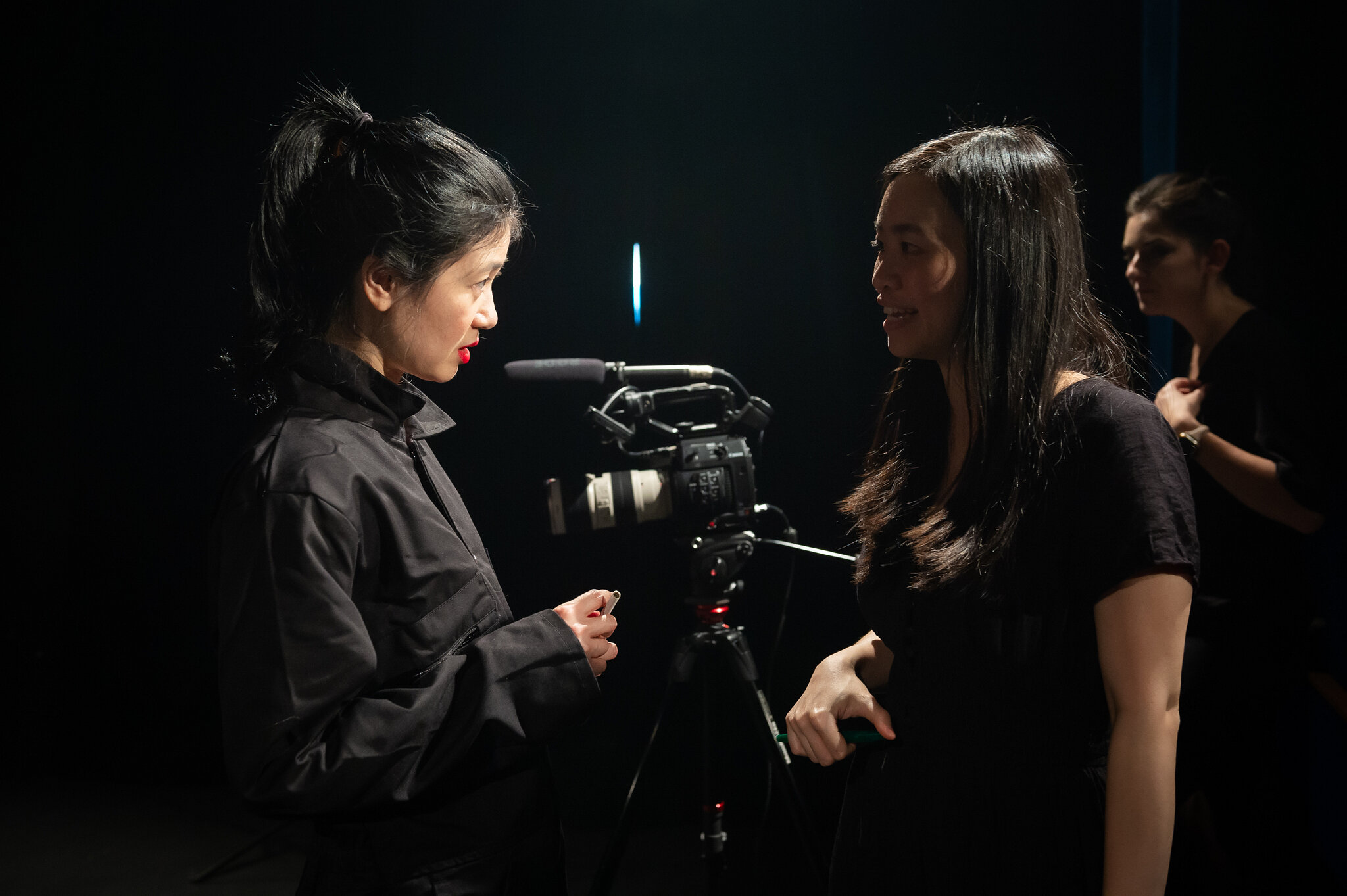
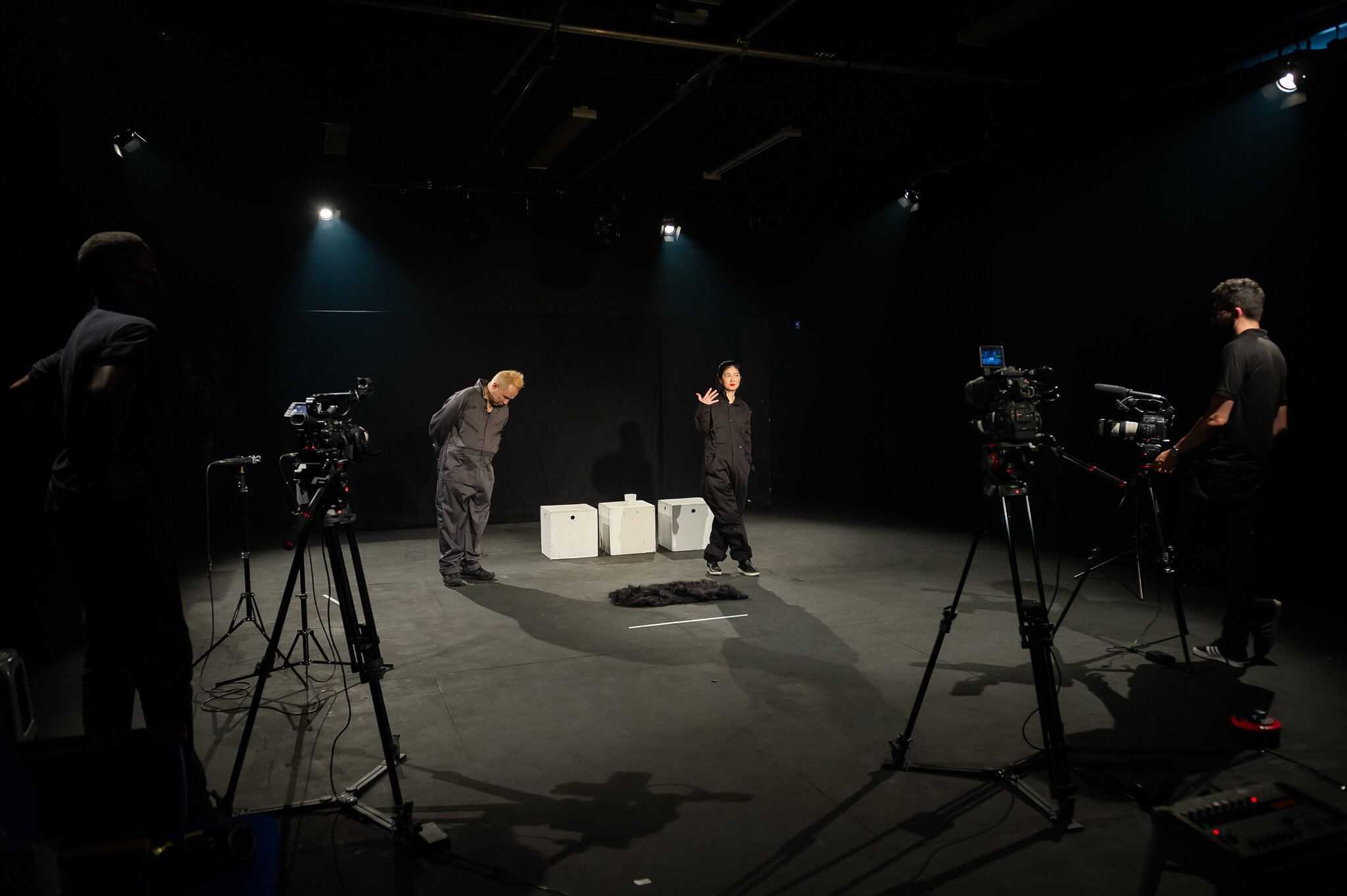
Translation 1 (English)
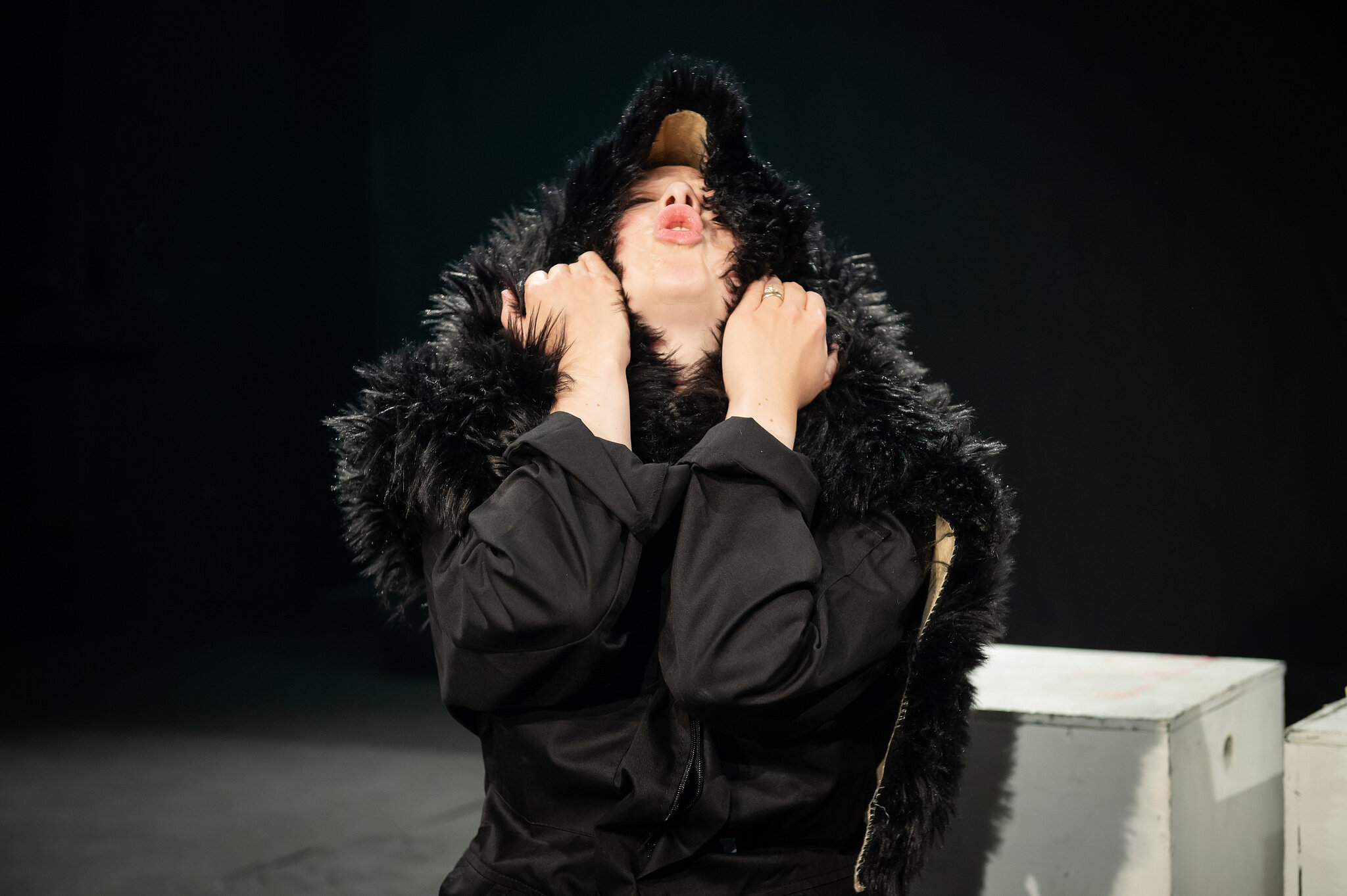
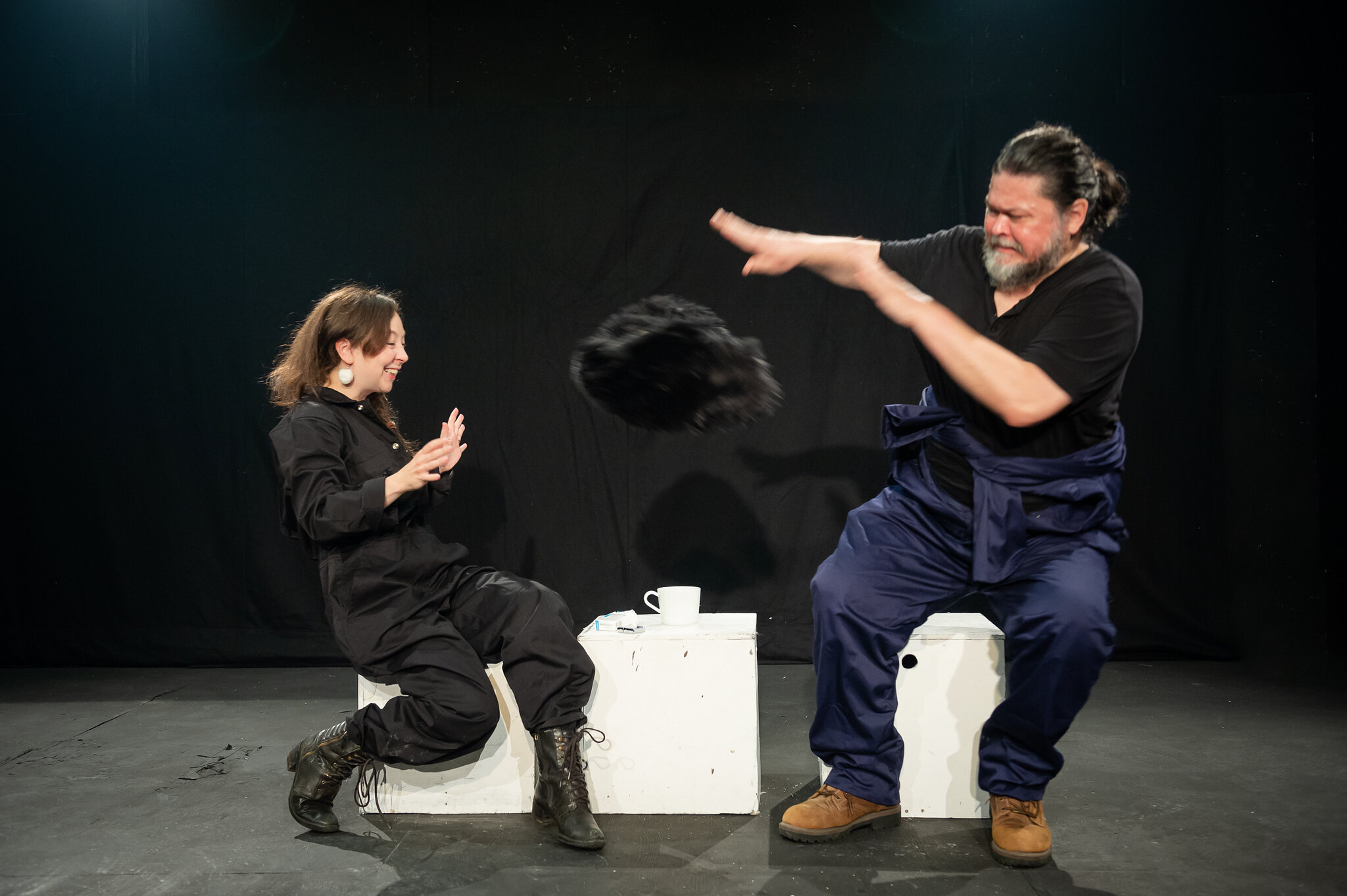
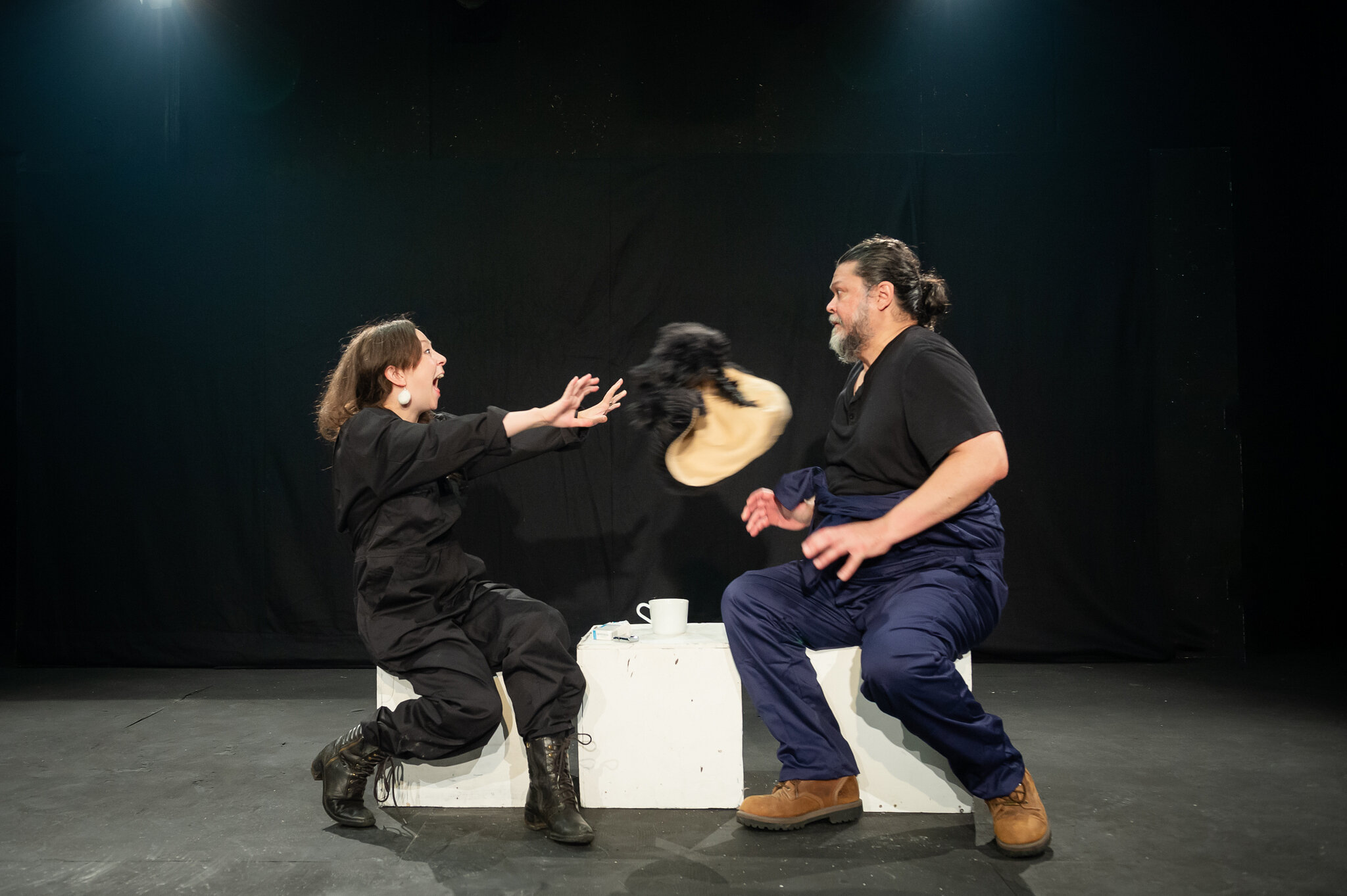
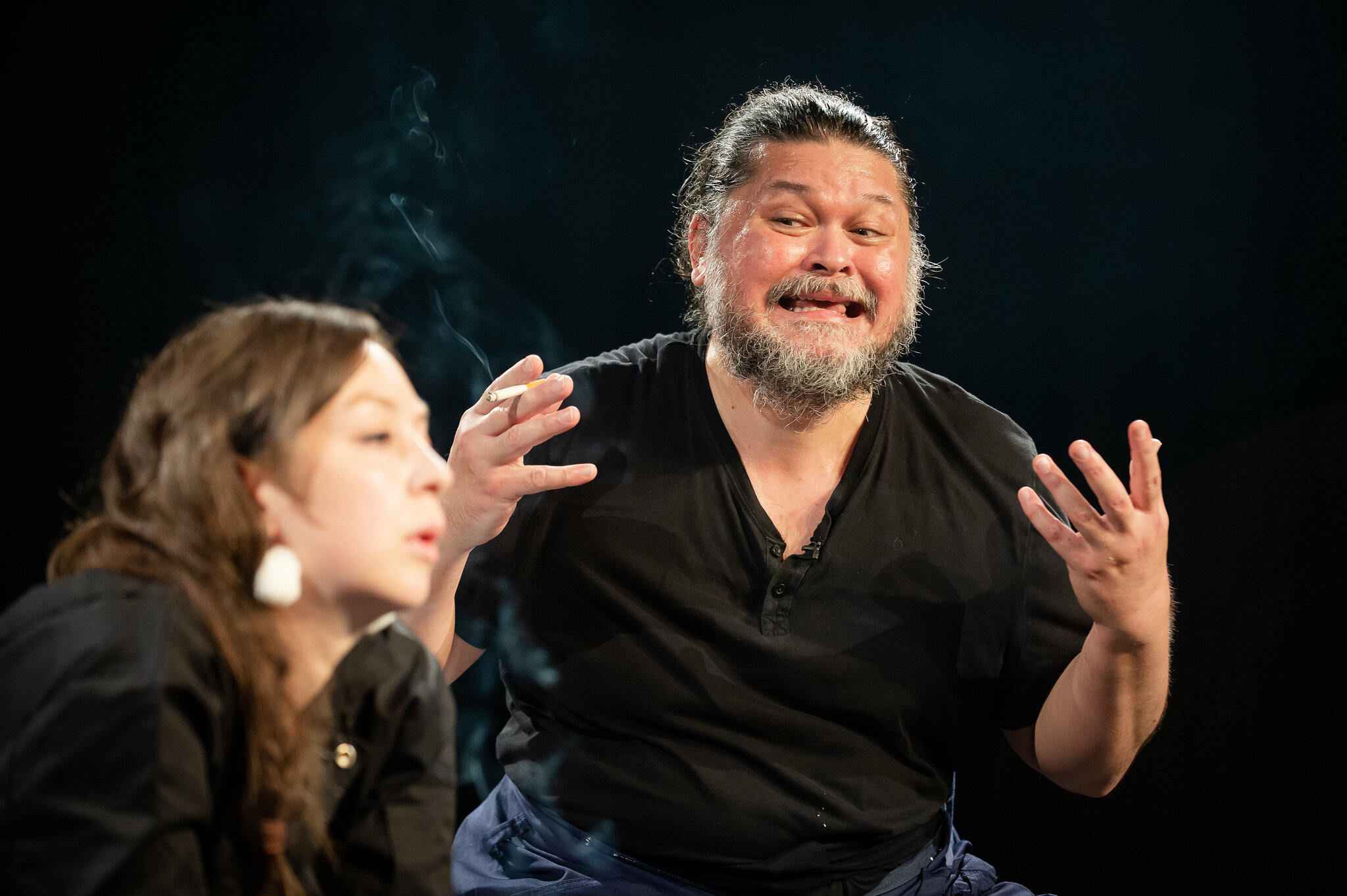
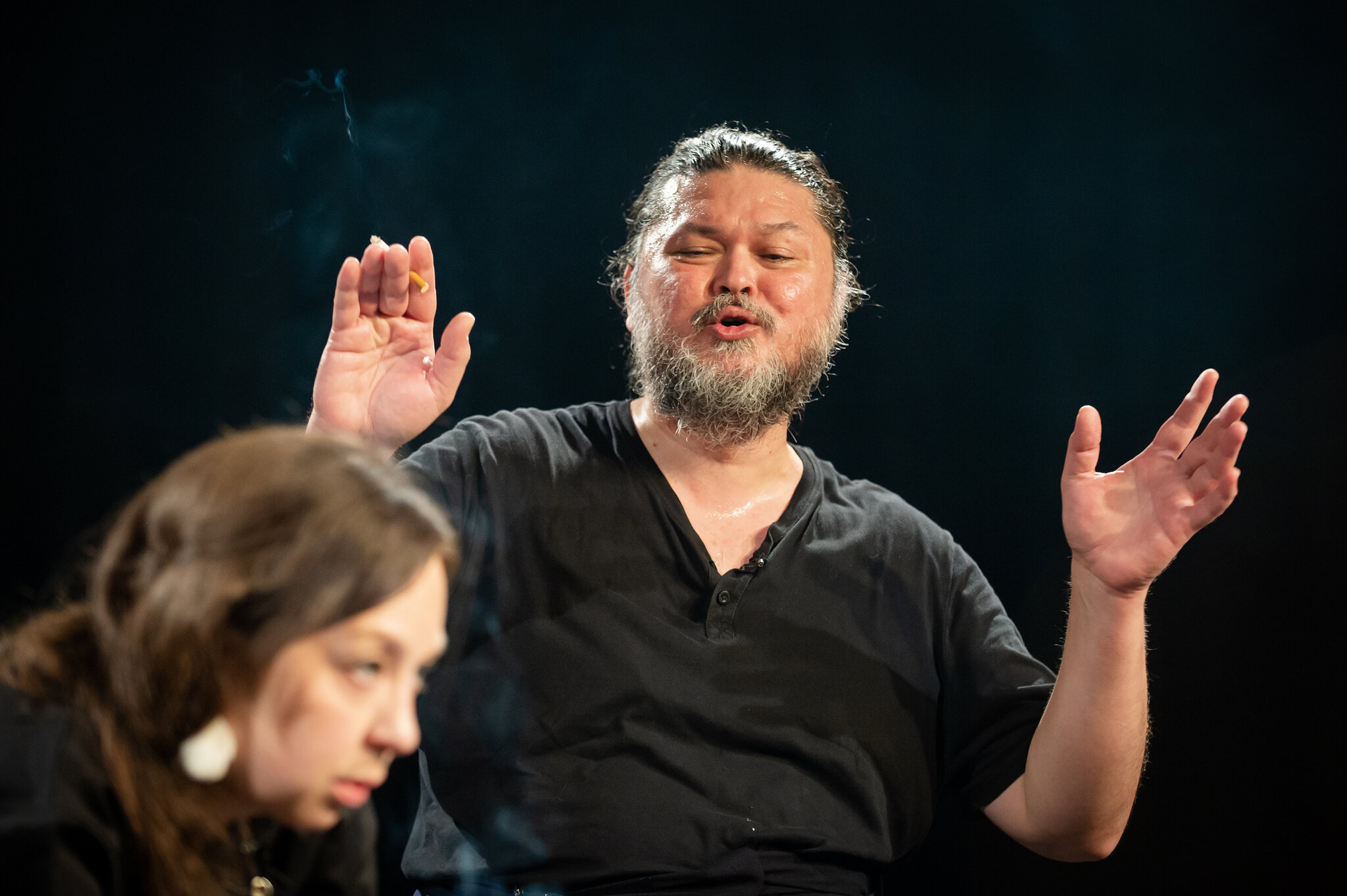
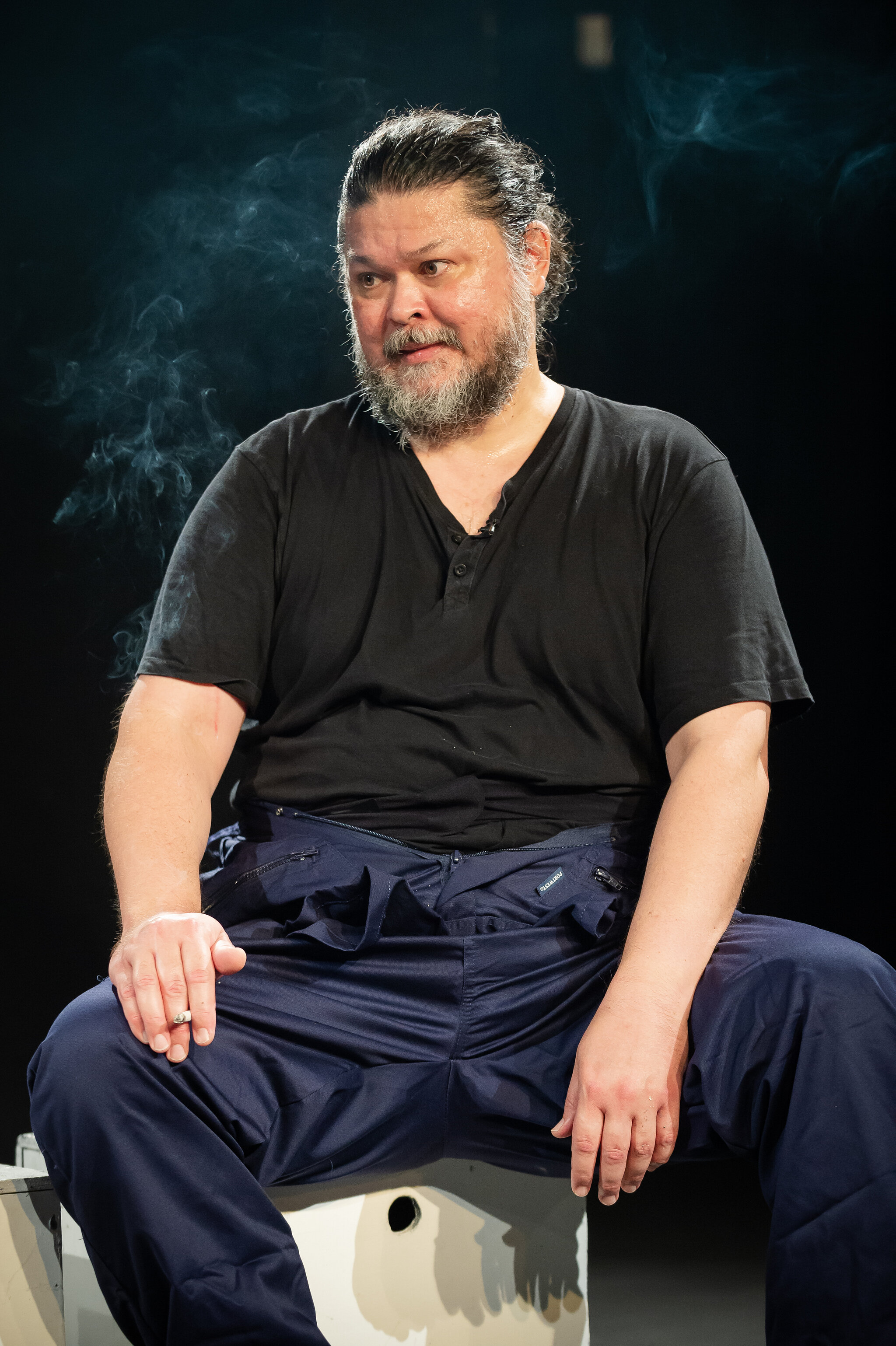
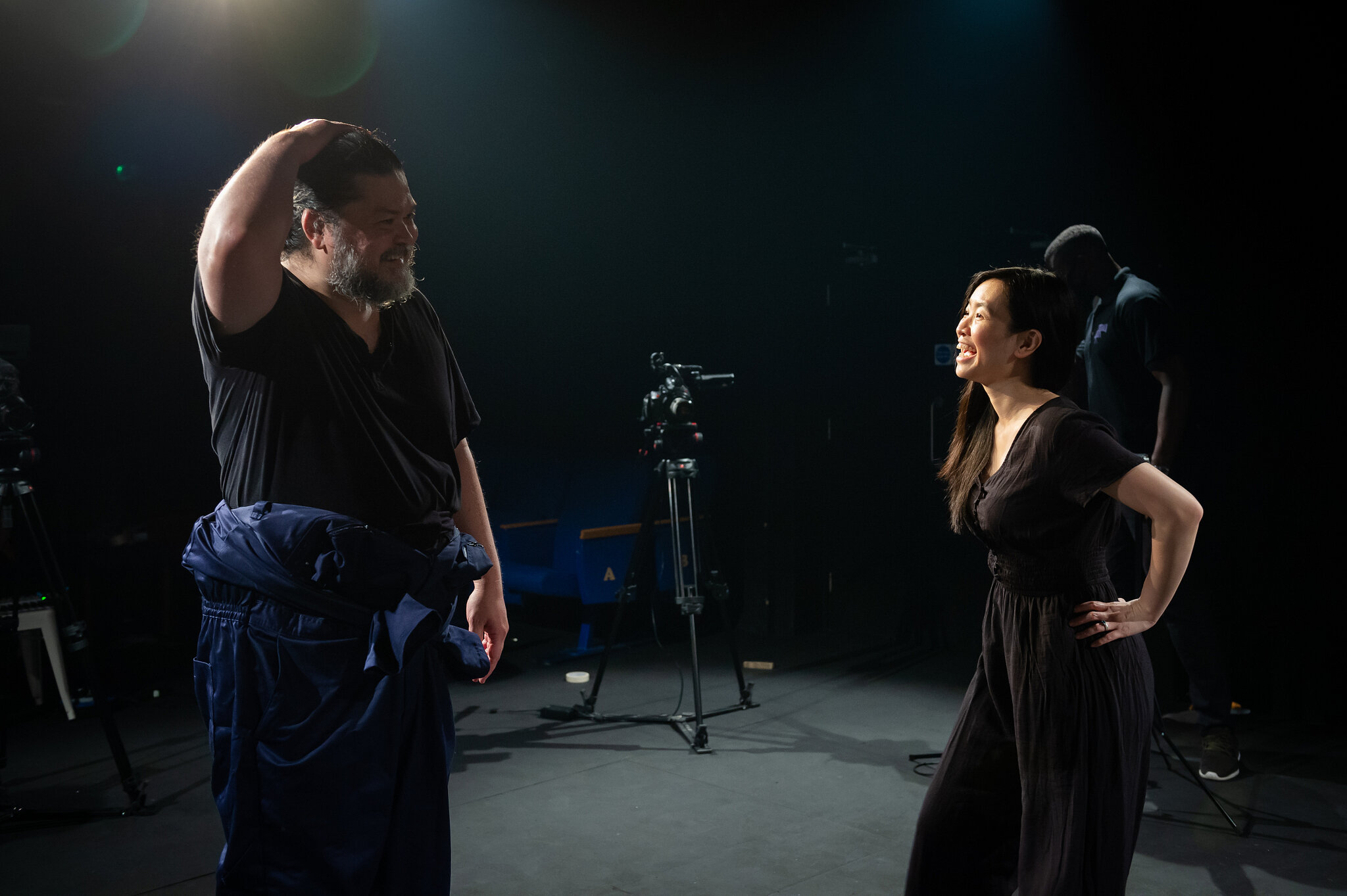
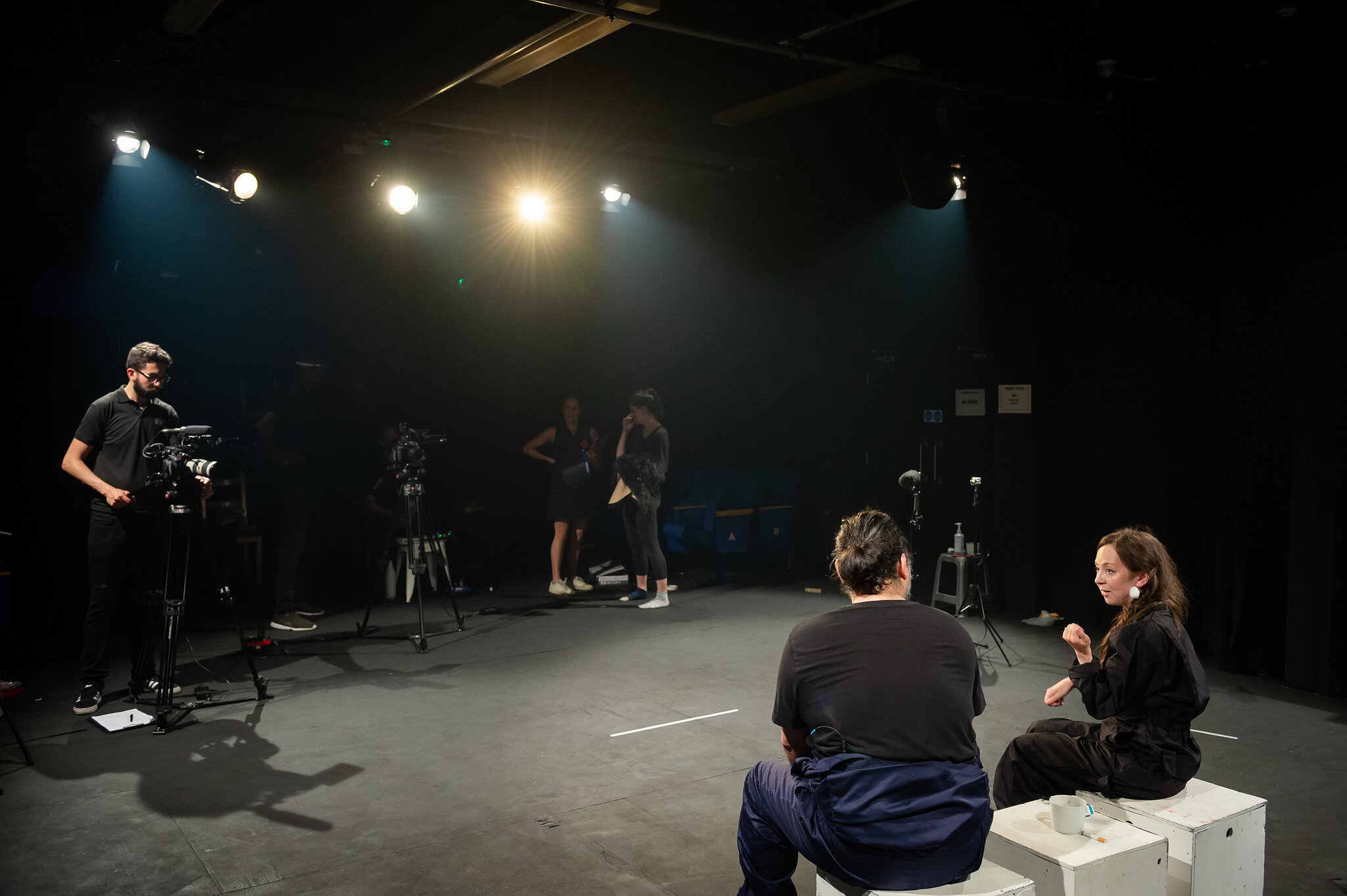
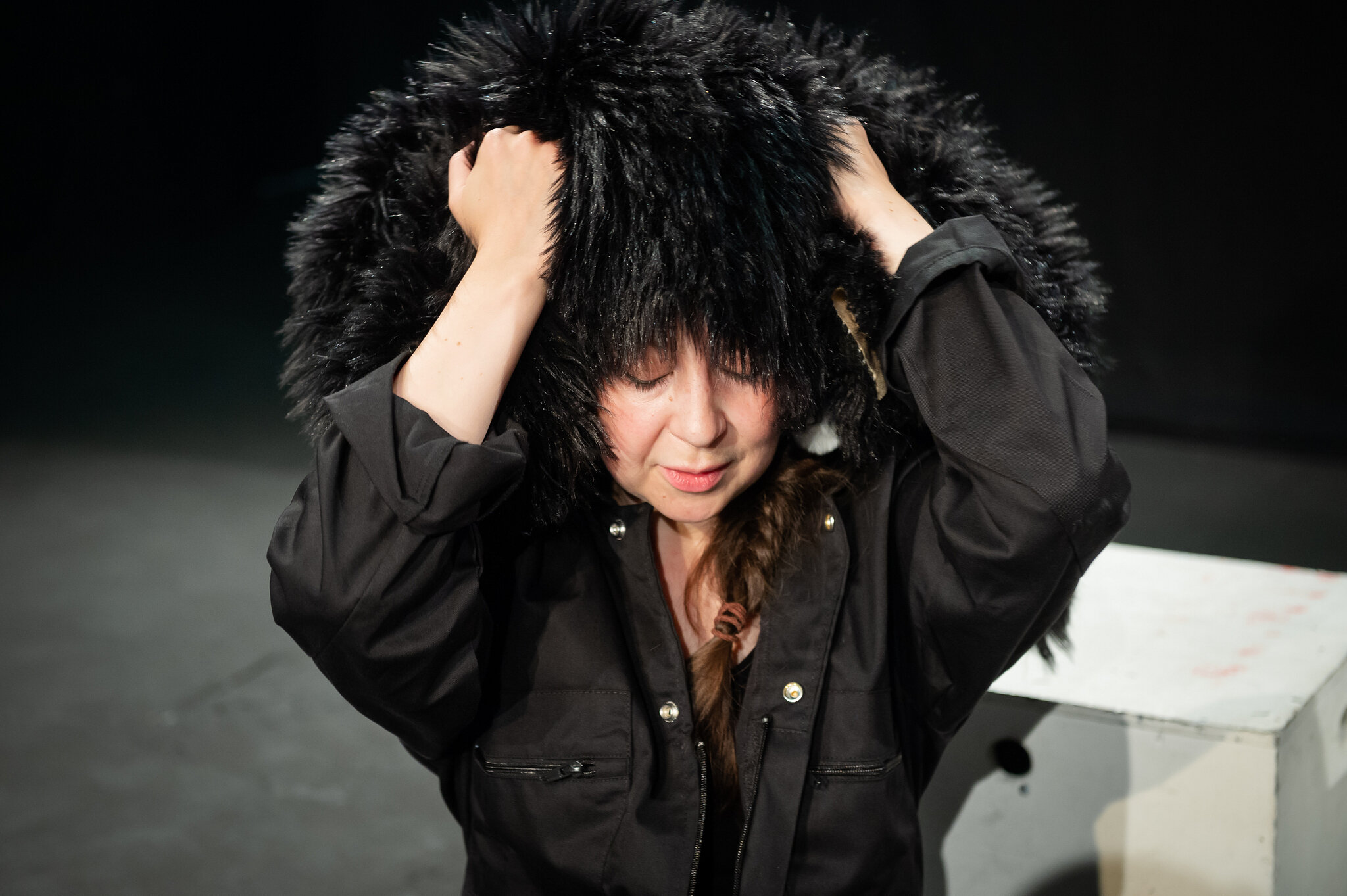
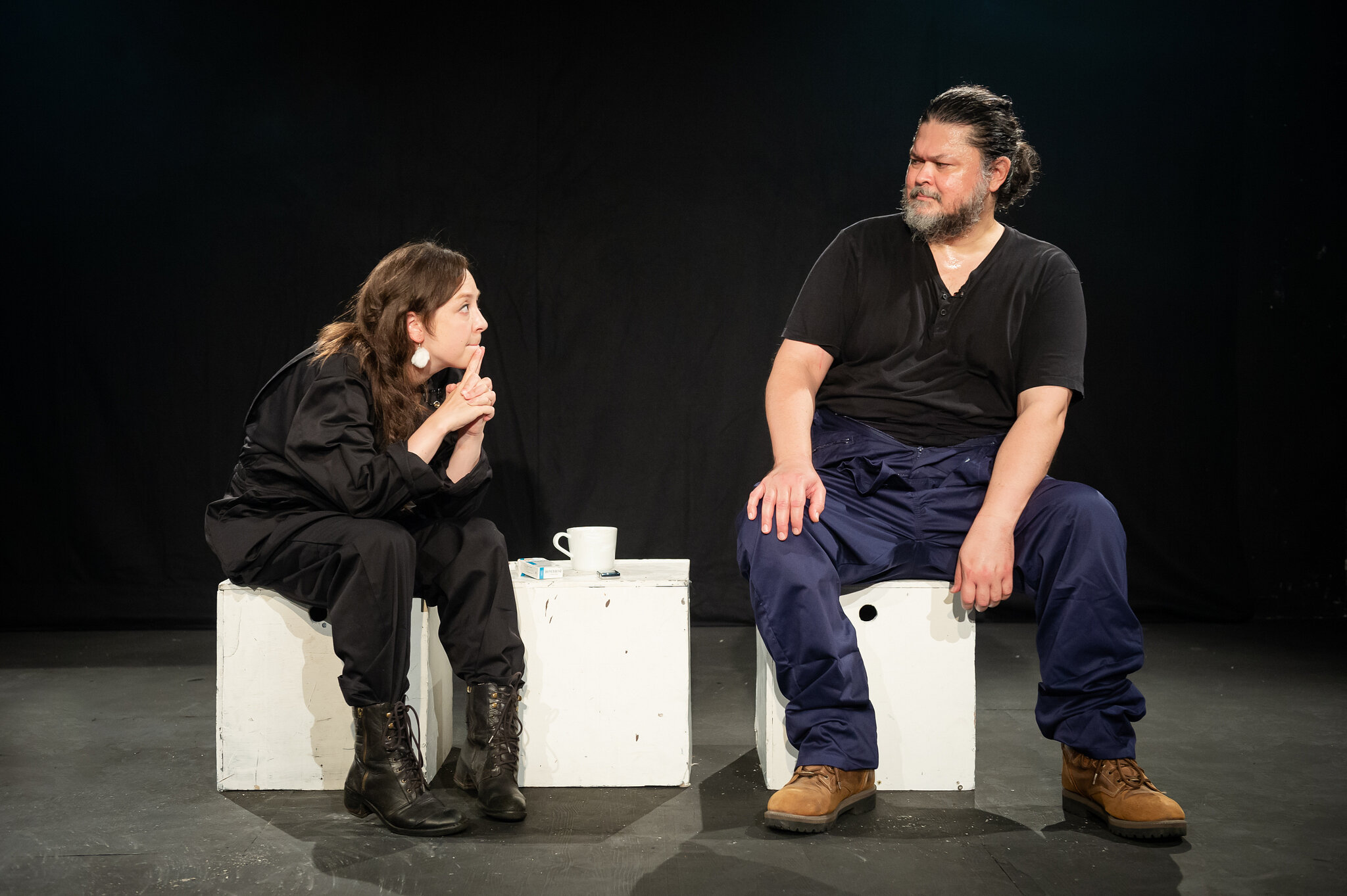
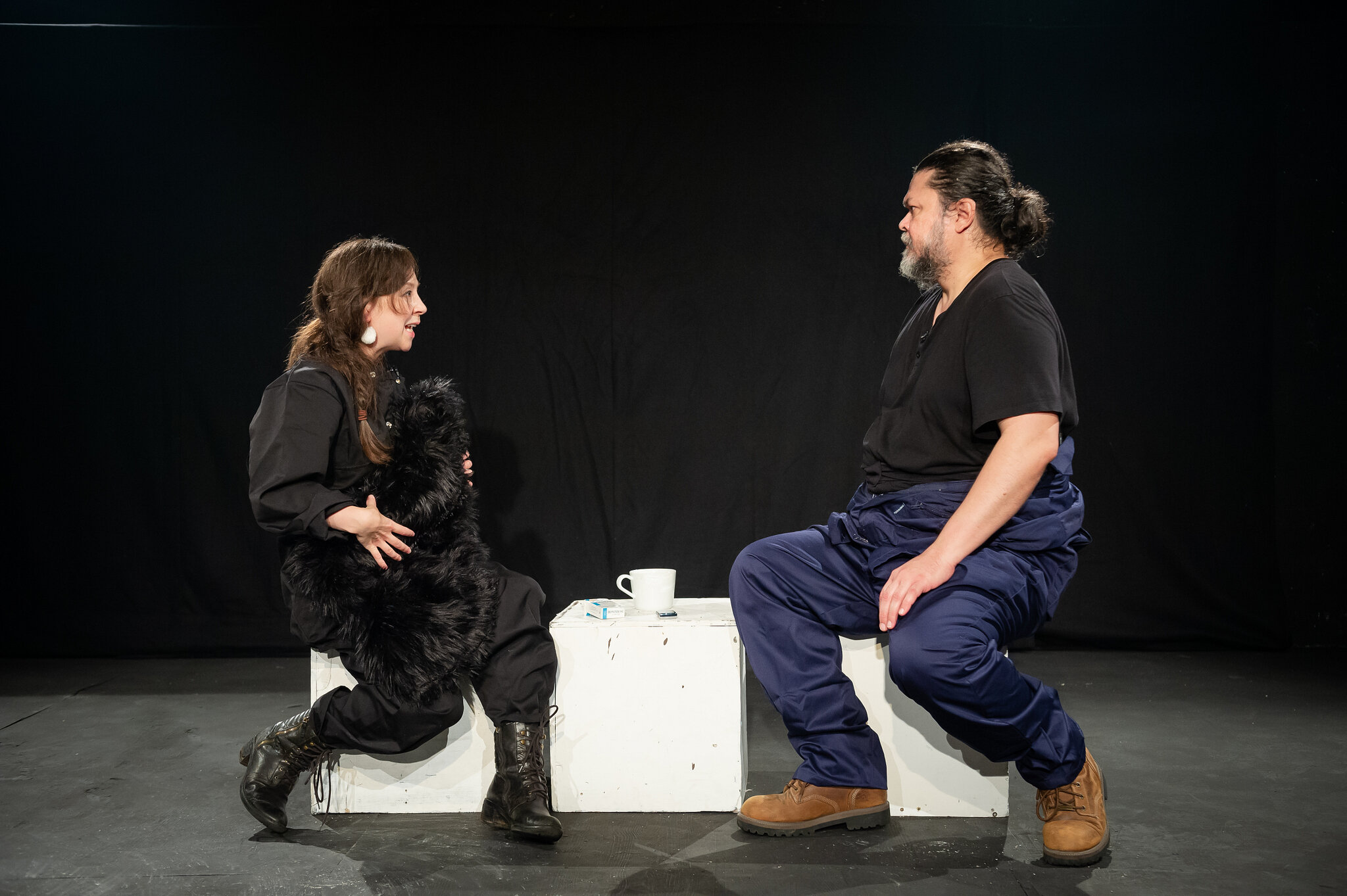
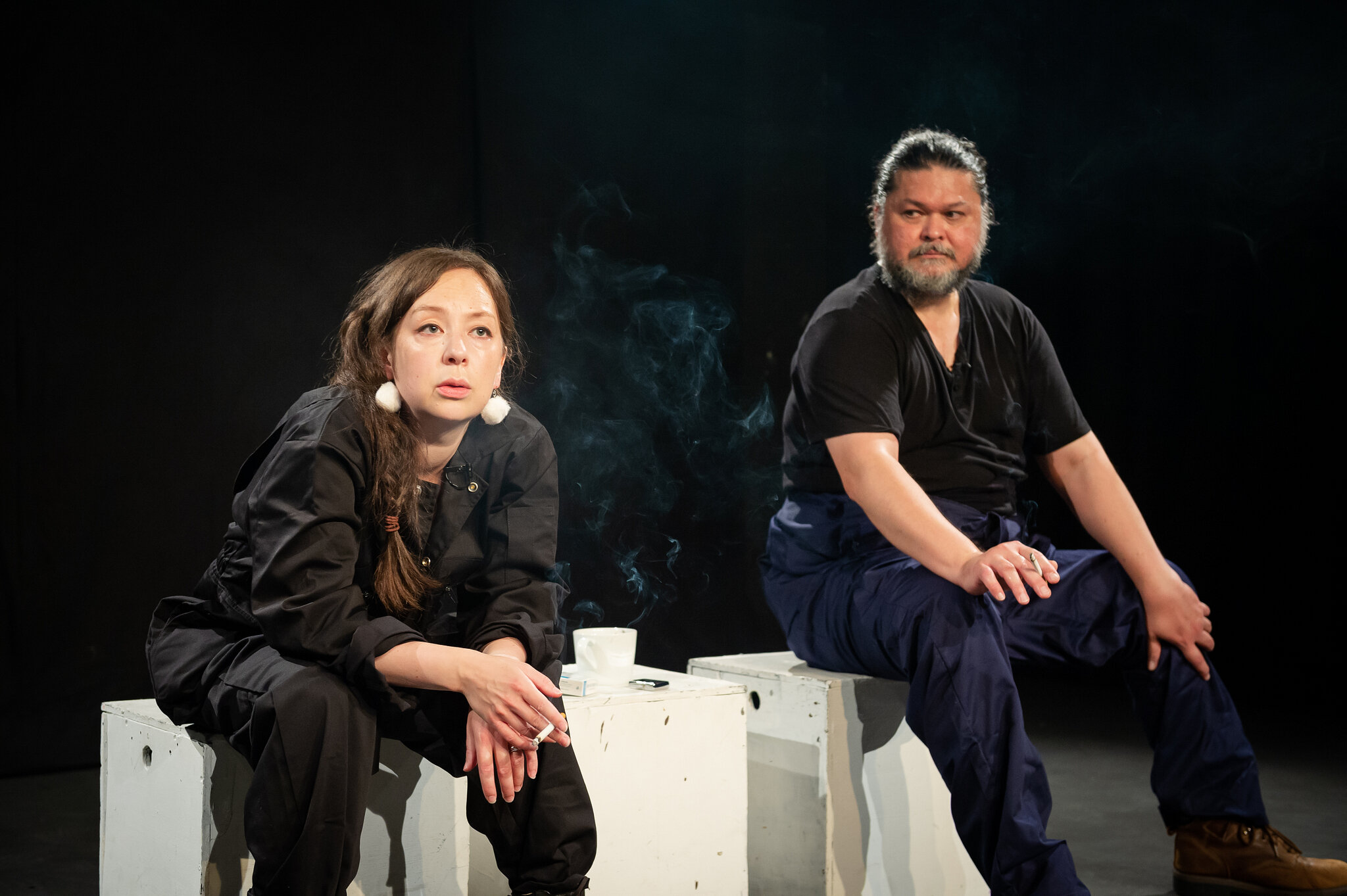
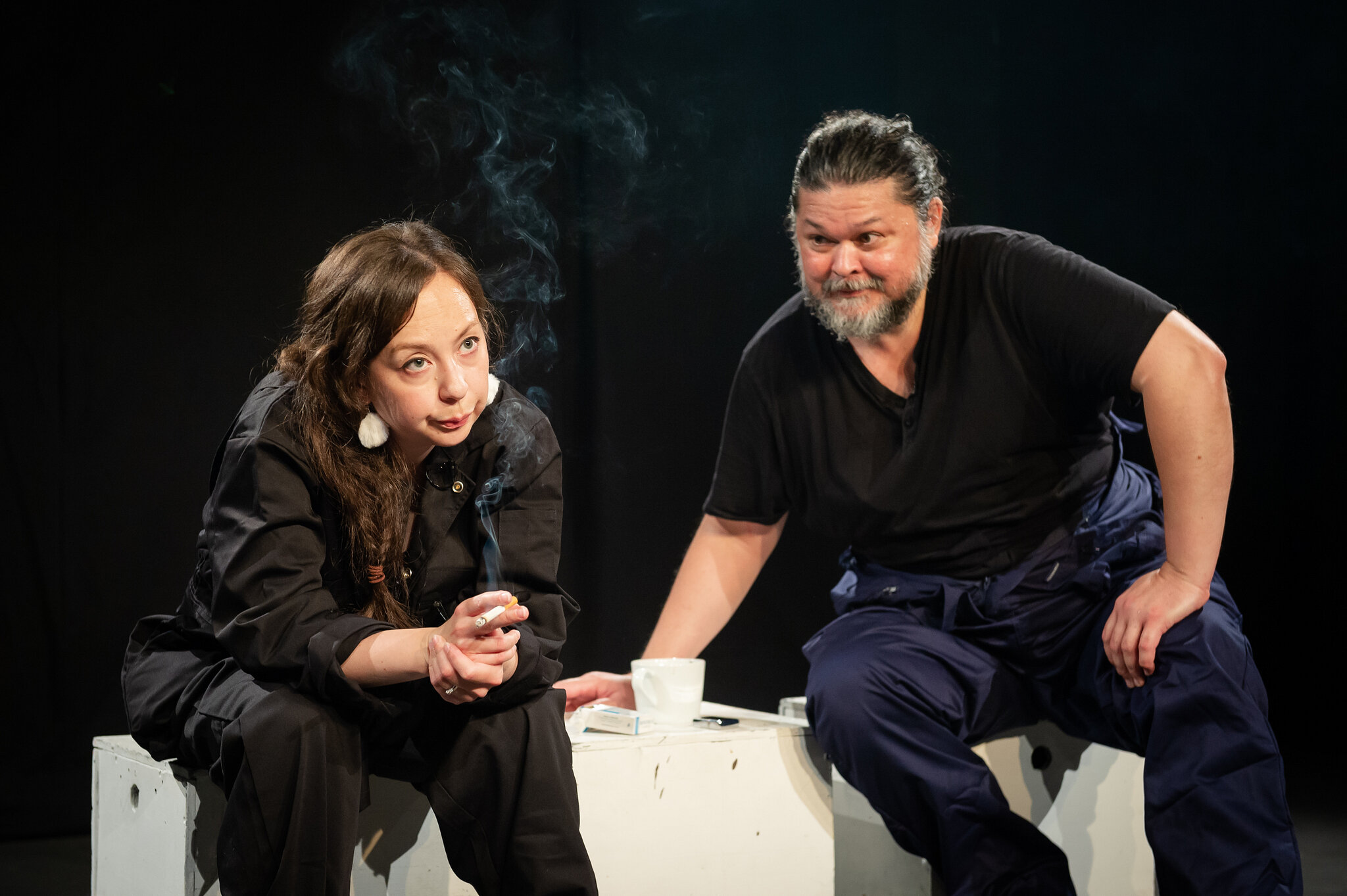
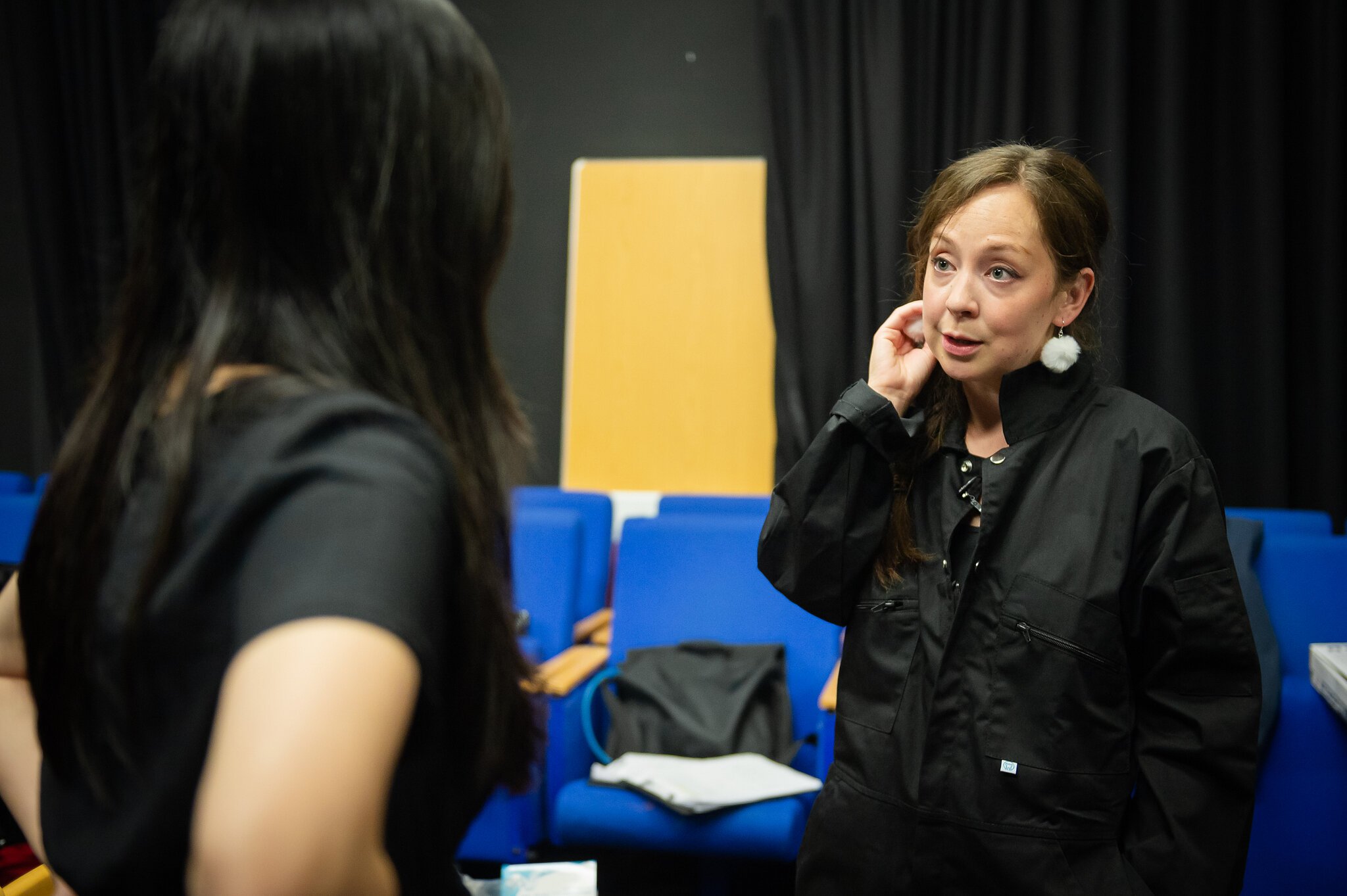
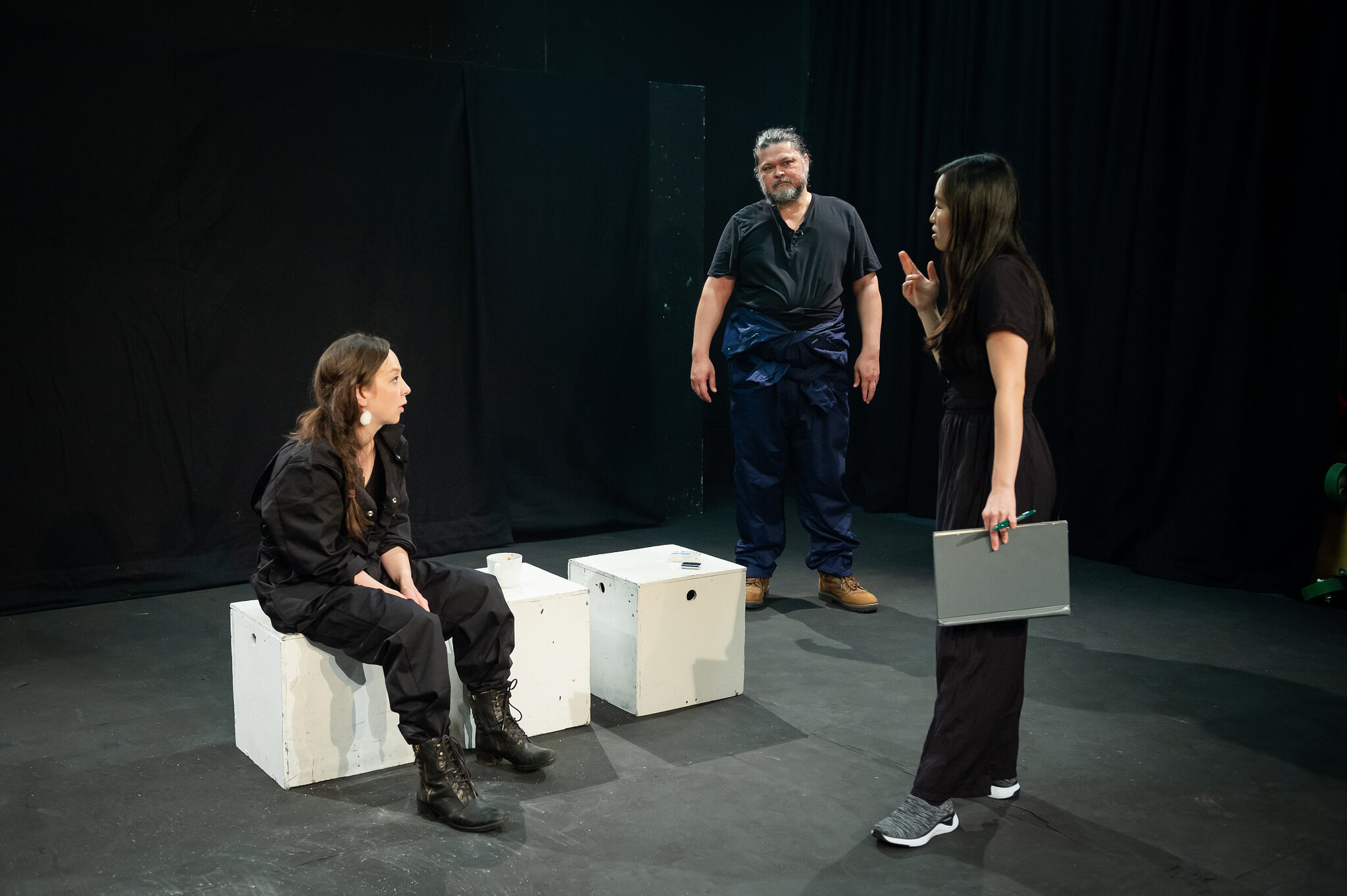
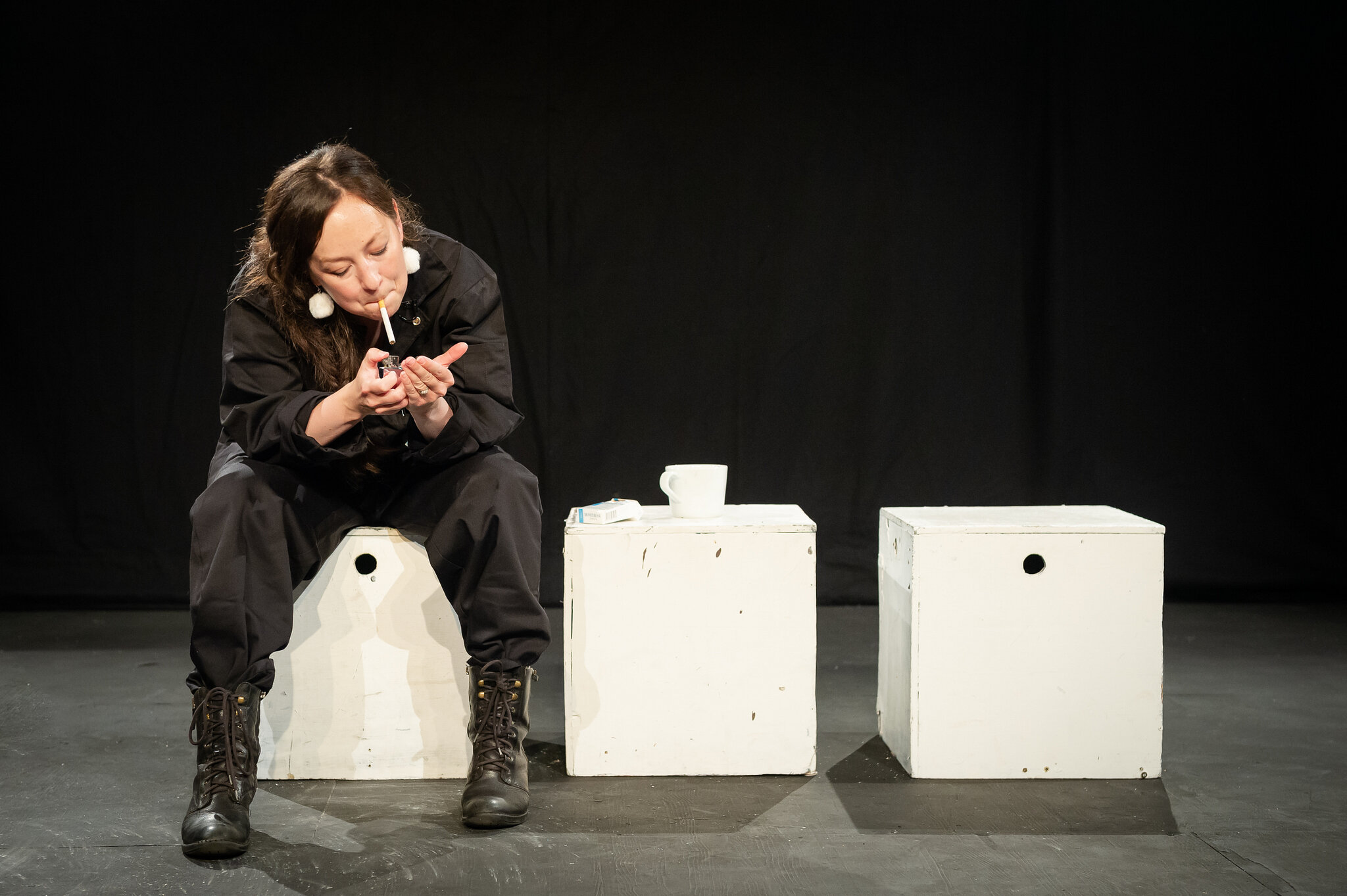
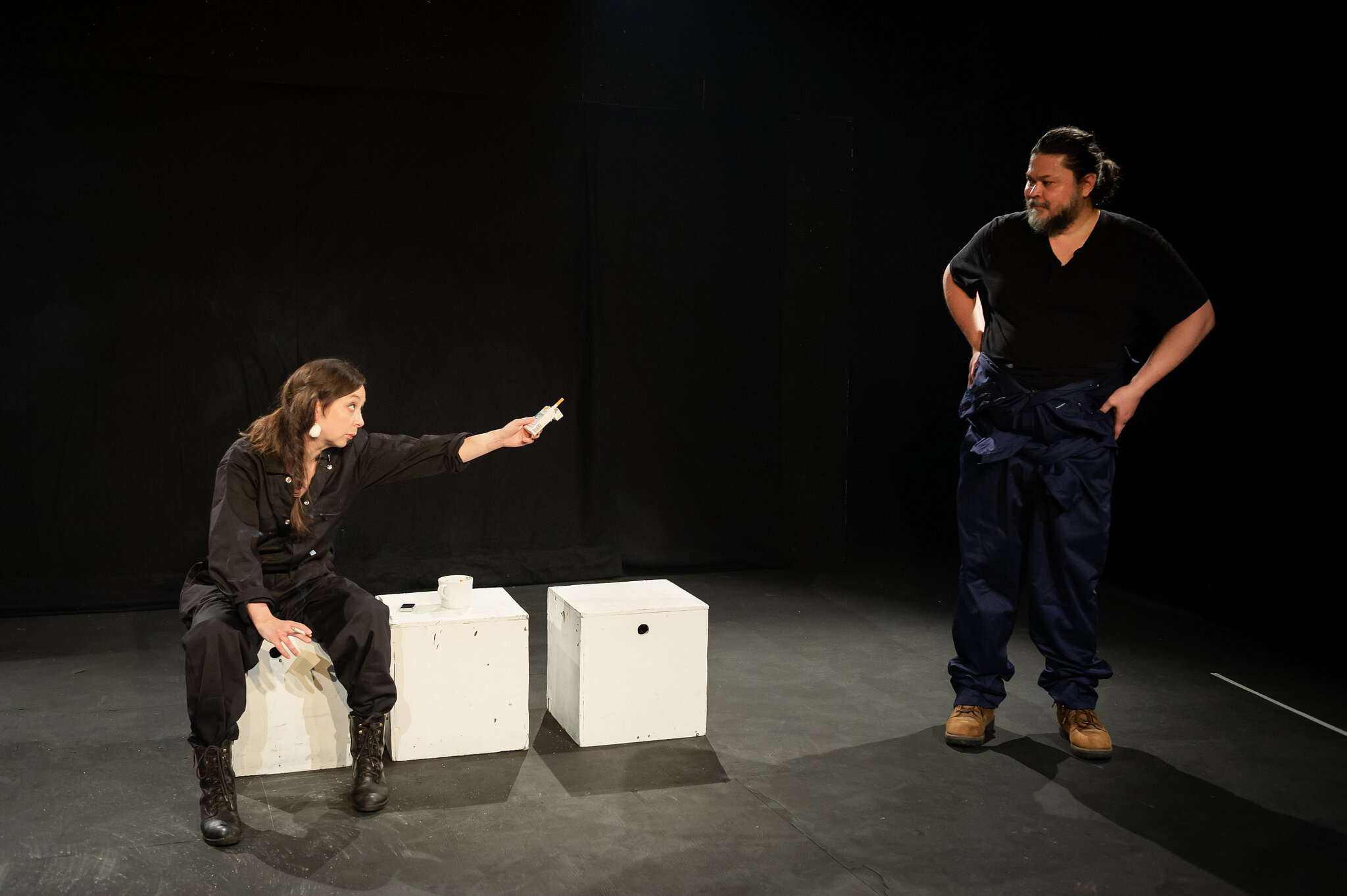
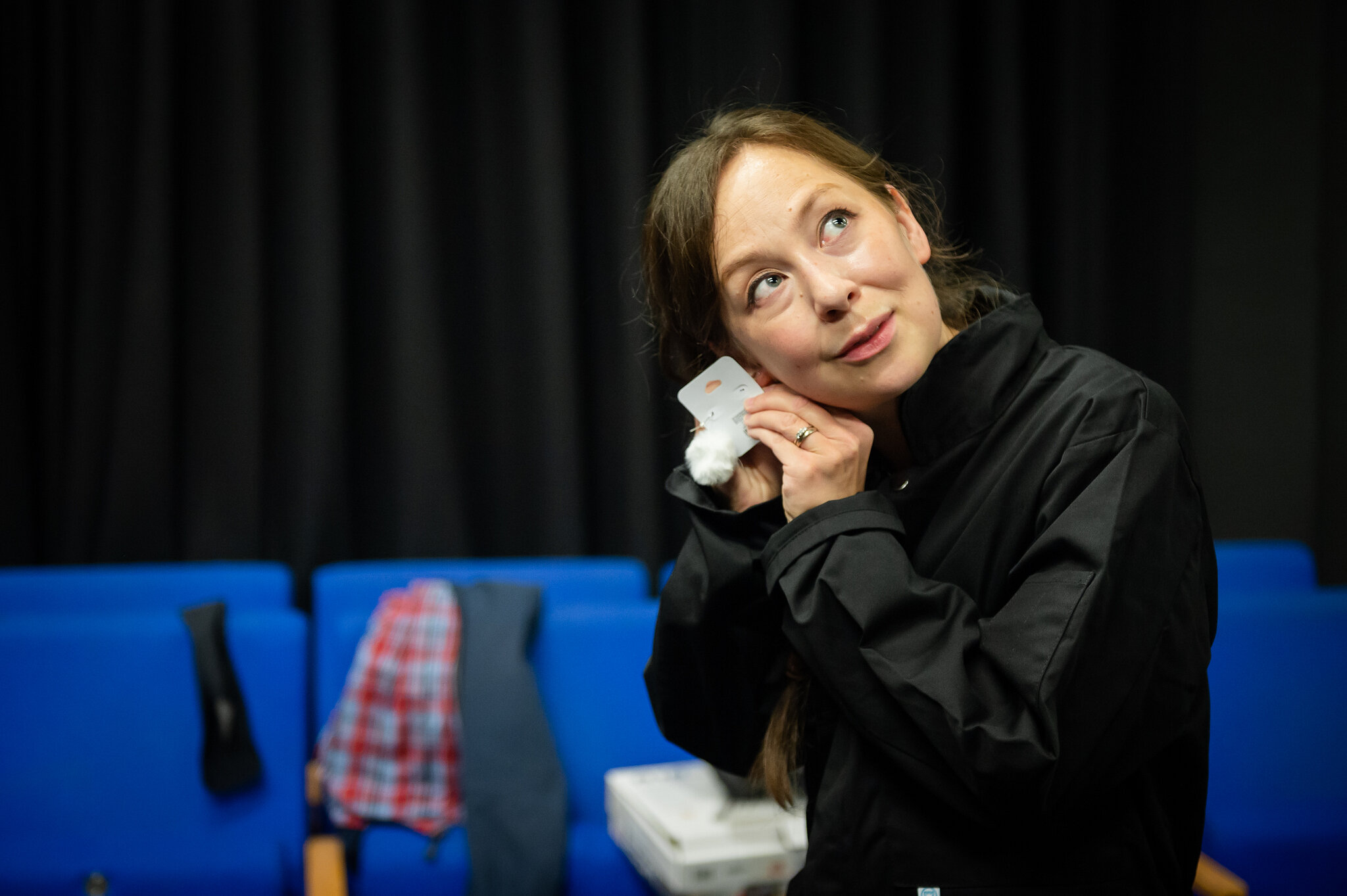
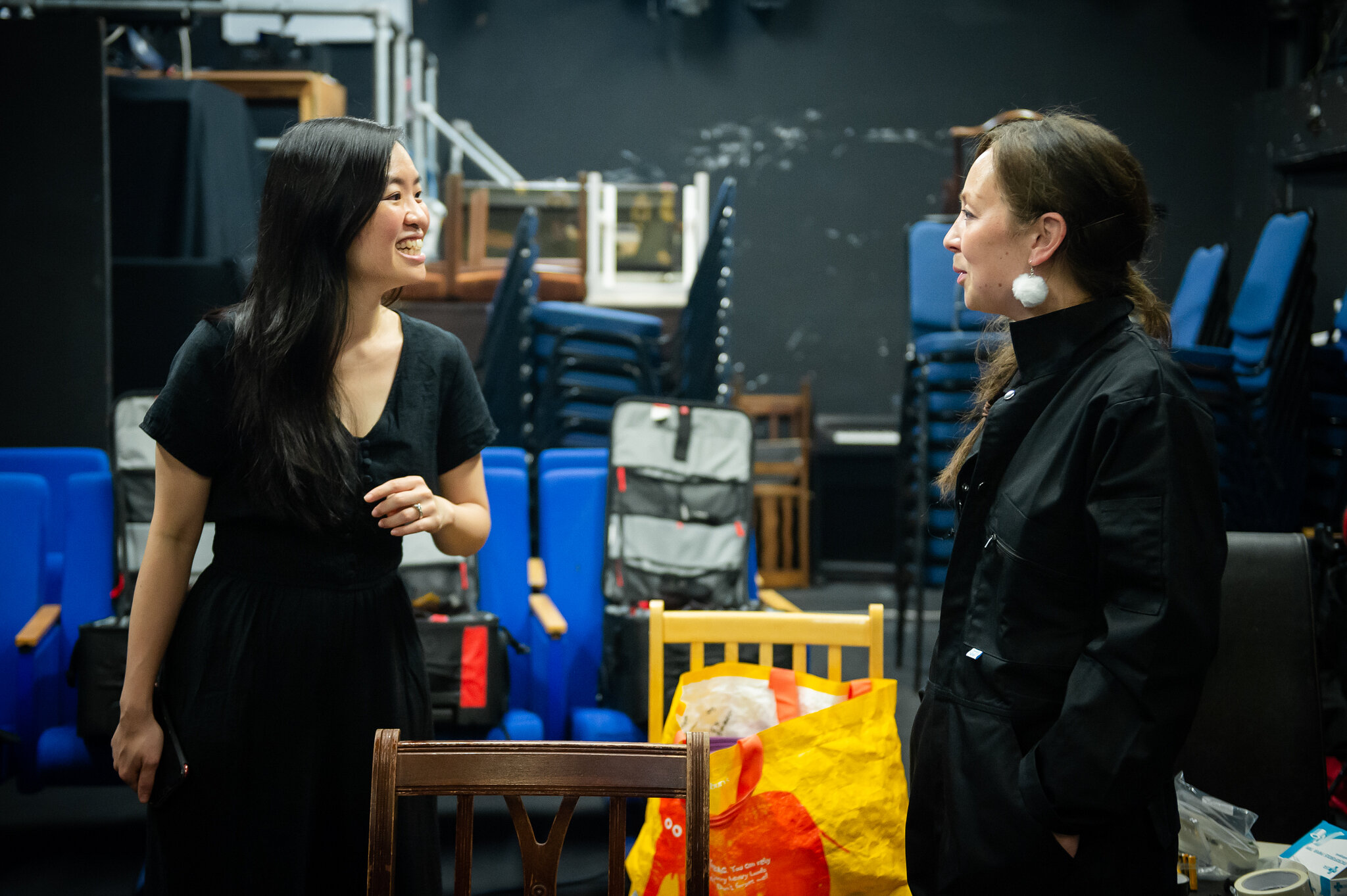
Cast and crew
Jasmine Yu-Hsing Chen
Essay Writer














